The HyperTexts
Famous Heretics
Who were the most famous heretics of all time (or the most infamous heretics,
depending on one's views)? The greatest
heretics usually lie at one of two extremes, being either notorious atheists or
notorious saints. Ironically, the three greatest Christian poets were heretics:
Dante (who claimed to be saved from hell by his lover Beatrice and the pagan poet Virgil),
John Milton (who gave the atonement one embarrassed enjambed line in his epic
poem
Paradise Lost), and Gerard Manley Hopkins (who called himself the twin
of Walt Whitman, a gay heretic). And now, without further ado, here is my
admittedly subjective list of the most notorious heretics of all time:
The Top Ten Heretics of All Time
(#10) Thomas Jefferson: Called an "infidel" by orthodox Christians of his day,
Jefferson used scissors to snip out Bible verses that offended his powers of
reason, including the miracles and resurrection of Jesus.
(#9)
Donald Trump
claims to be a Christian, but said
that he never asks God for forgiveness and spoke dismissively of Holy Communion
and the Body and Blood of Jesus Christ
as his "little cracker" and "little wine." The Donald's
family purchased the Babylonian tower at 666 Fifth Avenue, a street symbolic of
money (Mammon). The ancestor who started the Trump family business died on
6-6-6. Her name was Elizabeth Christ Trump. The name Elizabeth means "oath" or
"vow" so her name literally means "Oath for Christ to be Trumped." Donald
Trump's first budget deficit was 666 billion dollars. On the Ides of March, the
day Rome changed from a republic to a dictatorship, he had 666 delegates.
Lawyers trying to reunite migrant children with their mothers and fathers
revealed that there were 666 children who had been separated from their
families. It really does seem like an Omen movie come to life, and you
can learn more by clicking Trump's hyperlinked name if the subject interests
you.
(#8) Voltaire: The foxiest of heretics
was always one step ahead of his orthodox foes, who gnashed
their teeth in outer darkness as he soaked up the
limelight.
Once fanaticism has gangrened brains
the incurable malady invariably remains.
—Voltaire, loose translation/interpretation by
Michael R. Burch
Those who can make you believe absurdities can make you commit atrocities.—Voltaire
If God created man in his own image, we have more than reciprocated.—Voltaire
God is a comedian playing to an audience too afraid to laugh.—Voltaire
Now, now, my good man, this is no time for making enemies.—Voltaire, on his
deathbed, when asked by a priest to denounce Satan
(#7) Joan of Arc: The most famous of French saints and the
savior of her country was
burned at the stake by intolerant, chauvinistic Christians.
(#6) Mark Twain delayed
the publication of his heretical book Letters from the Earth for fifty years,
presumably to protect his family from
intolerant Christians.
It's not the parts of the Bible that I don't understand that bother me, it's the parts I do understand.—Mark
Twain
I found out that I was a Christian for revenue only and I could not bear the
thought of that, it was so ignoble.—Mark Twain
Nothing so needs reforming as other people’s habits.—Mark Twain
Go to Heaven for the climate, Hell for the company.—Mark Twain
The Christian's Bible is a drug store. Its contents remain the same, but the medical practice changes.—Mark
Twain
(#5) William Blake claimed to be able to speak to angels and departed saints,
but he called the biblical god "Nobodaddy" because no one would him
for a father. Blake also denied the need for salvation, claimed to be his own
Christ, and advocated tolerance, equality of the races and sexes, and
free love.
(#4) Saint Paul wrote most of the New Testament; he
hated and despised the Hebrew Bible's Mosaic law and claimed that because
Jesus had fulfilled the law, no one else had to keep it!
(#3) John of Patmos: The seemingly insane
writer of Revelation refuted Paul, saying in his second chapter that Jesus would personally murder
children for their mothers' sins (i.e., for not keeping the Mosaic law).
(#2) Mary Magdalene was the first person to believe in Jesus as Christ, and thus
became the first Christian, making her a terrible heretic to her former
religion.
(#1) Jesus Christ refuted the Sabbath and dietary laws of Moses, repudiated the
Mosaic injunction to stone girls and women to death for having extramarital sex,
and claimed to be the Son of God, according to the New Testament.
But perhaps the greatest heretics of all were the original writers and copyists of the Bible.
After all, they accused God of all sorts of wild injustices, saying that he
commanded and/or condoned the worst crimes known to mankind: slavery, sex slavery,
the ghastly stoning to death of children for misdemeanors, infanticide,
matricide, ethnic cleansing and genocide. Reading what the Bible actually says
about its evil, unjust God inspired this epigram of mine:
If God
is good
half the Bible
is libel.
—Michael R. Burch
Other Notable Heretics
Michael Servetus: The scientist who discovered the pulmonary circulation
of the blood was sentenced to death by a founding father of protestantism, John
Calvin.
John Calvin: One
of many murderous Christian "saints." Others include Martin Luther, Thomas More,
various Puritans including Oliver Cromwell, and a number of canonized Catholic popes.
Albert Einstein: Devout in his youth,
Einstein's knowledge and appreciation of science led him to reject the Bible's
miracle-producing God.
A question that sometimes drives me hazy:
am I or are the others crazy?
—Albert Einstein, loose translation/interpretation by
Michael R. Burch
Sigmund Freud: Like Einstein the son
of devout Jews, he came to regard God as an illusion and religion as a delusion.
Thomas Edison: The world's greatest
inventor was an atheist.
Marie Curie: The only person to win
Nobel prizes in different branches of science (physics and chemistry) was an
atheist.
Anne Askew: the first Englishwoman
known to have demanded a divorce was tortured on the rack, then burned at
the stake by Christians.
Giordano Bruno: The Dominican-monk-turned-heretic was burned at the stake by Christians for claiming that the earth's
sun is just one of many stars, which of course it is.
Galileo
Galilei: He would have been burned at the stake if he hadn't recanted, but of
course he was correct that the earth revolves around the sun.
Mother Teresa: The most famous of
modern "saints" experienced fifty years of "spiritual dryness" in which she
said that she never
felt the presence of God.
None of the best-known American
Founding Fathers were orthodox Christians: George Washington, Thomas Jefferson,
John Adams, Ben Franklin, James Madison, James Monroe, et al.
Jean-Jacques Rousseau: One of the
earliest Romantics, Rousseau repudiated the doctrine of original sin and
denied that Jesus Christ was man's redeemer.
Michelangelo: The greatest of
Christian artists caricaturized popes, defied convention, and wrote the first
gay love poems in a modern language.
He who follows will never surpass.—Michelangelo, translation
by Michael R. Burch
Dante: the greatest of Catholic poets
ironically claimed to be saved by his lover, Beatrice, and a pagan poet, Virgil.
Little sparks may ignite great Infernos.—Dante, translation
by Michael R. Burch
John Milton: the greatest of
Protestant poets gave the atonement one embarrassed line in his epic
Paradise Lost, while turning Adam, Eve and Satan into romantic heroes for
the ages.
Shakespeare: the greatest of English
poets never said a word about believing in Jesus or being "saved" by him.
Oscar Wilde and Walt Whitman: These geniuses and freethinkers were hounded by bigoted Christians.
(Wilde did hard time at Reading Gaol for being gay and died soon after being released.)
Biblical Heretics
Adam and Eve were the "original sinners" according to the Bible, but they were
innocents with no knowledge of good and evil, and were therefore incapable of
"sinning."
Evil Cabal
by Michael R. Burch
those who do Evil
do not know why
what they do is wrong
as they spit in ur eye.
nor did Jehovah,
the original Devil,
when he murdered eve,
our lovely rebel.
Esther: There is no mention of God in
the biblical account of the Jewish queen who saved her people from genocide by
relying on her wits and sex.
Hosea: The Hebrew prophet denied the need for redemption via
sacrifice, saying that God said, "I desire chesed [mercy, compassion,
lovingkindness], not sacrifice." [Jesus quoted Hosea 6:6]
Jeremiah: The weeping prophet also refuted
sacrifice, saying that at the time of Moses and the Exodus, Jehovah
gave no instructions about burnt offerings and sacrifices. [Jeremiah 7:22]
Amos: The prophet likewise refuted
the efficacy of sacrifice, saying that God would reject burnt offerings, and
also denying that offerings had been made to Jehovah during the Exodus. [Amos 5:22-26]
Micah: The prophet also referred to
Moses and the Exodus, saying that God did not require the blood of firstborns
(and thus not of Jesus either). [Micah 6:1-8]
Isaiah: The prophet also denied that
Jehovah had ever desired the flesh and blood of animals. [Isaiah 1:11]
King David: Long before the time of
Jesus, David believed in salvation by grace, claiming
that God did not require sacrifice and could simply choose not to impute sin.
[Psalm 32:1-2]
King Solomon: If he wrote
Ecclesiastes and the Song of Songs, as many orthodox Christians claim, the
wisest of all men was a non-believer, a fatalist and a hedonist.
Moses and his brother Aaron, the high priest, both failed to believe in
and follow the commandments of Jehovah. Moses was denied entry into the Promised
Land for his lack of faith in Jehovah.
Job's wife told Job to "curse God and
die."
Abraham's wife Sarah laughed when God
said that she would become pregnant at an advanced age.
Abraham did not trust God to protect
his family, pretending that his wife was his "sister" and pimping her into the
Egyptian pharaoh's harem.
Lot did not trust God for protection
and offered his daughters to a crowd of rapists.
Lot's wife looked back and was turned
into a pillar of salt.
Other Famous (and Infamous) Heretics
Douglas Adams,
Woody Allen, Robert Altman, Martin Amis, Susan B. Anthony, Apollinaris, The Archpoet, Alexander the Great,
Aristotle, Jakob
Arminius, Francis of Assisi, Arius, Isaac Asimov, Athanasius, Audius, Augustine, Rob "No Hell" Bell, Saint Bernadette,
Björk, Lewis Black, Madame Blavatsky, Sir Richard Branson, Emily Bronte, Warren Buffett, Buddha, Robert Burns, Lord Byron,
Cain, Lucifer Calaritanus, James Cameron, Albert Camus, George Carlin, Celsus, Charlie Chaplin,
Noam Chomsky, Cleopatra, Leonard Cohen, Samuel Taylor Coleridge,
Jerry Coyne, Constantine, Copernicus, Thomas Cranmer, e. e. cummings, Richard Dawkins, Democritus, Bob Dylan,
Ebion, Emily Dickinson, Robert Frost, Gandhi, Sam Harris, Stephen Hawking,
Christopher Hitchens, A. E. Housman,
Jan Hus, Robert G. Ingersoll, Judas Iscariot, Angelina Jolie, James Joyce, Jezebel,
Jonah, Franz Kafka,
Helen Keller, Johannes Kepler, Larry King, Ray Kurzweil, Bruce Lee, Gypsy Rose
Lee, John Lennon, Jonah, Lilith, Martin Luther, Madonna, Donatus Magus, Simon Magus, Mani,
Marcion, Christopher Marlowe, Michael Martin,
Jacques de Molay, Marilyn Monroe, Montanus, Nestorious,
Isaac Newton, Friedrich Nietzsche, Noah, Noetus, Bill Nye, Origen, George
Orwell, Pelagius, Sylvia Plath, Plato, Edgar Allan Poe, Marguerite Porete, Ayn
Rand, Philip Roth, Bertrand Russell, Sabellias, Carl Sagan, Samson, Sappho, Anne Sexton,
William Shakespeare, George Bernard Shaw, Mary Shelley, Percy Bysshe Shelley,
Sarah Silverman, Peter Singer, Joseph Smith, Socrates, Sophocles, Spinoza, Howard Stern, Wallace Stevens,
Emanuel Swedenborg, Charles Algernon Swinburne, Theodotus, Saint Thomas (the
Doubter), Leo Tolstoy, William Tyndale, Valentinus, Leonardo da Vinci, Peter Waldo,
Edward O. Wilson, Virginia Woolf, William Wordsworth, John Wycliffe,
William Butler Yeats, Brigham Young, Frank Zappa, Mark Zuckerberg
American Presidents and Founding Fathers who were not orthodox Christians: John
Adams (Unitarian), John Quincy Adams (Unitarian), Ethan Allen (Deist), Chester
A. Arthur (Athiest), Martin Van Buren (Atheist), Dwight D. Eisenhower
(unbaptized), Millard Fillmore (Unitarian), Benjamin Franklin (Deist), Ulysses
S. Grant (unbaptized), Alexander Hamilton (Deist/Skeptic), William Henry
Harrison (unchurched), Rutherford B. Hayes (unchurched), Herbert Hoover
(Quaker), Thomas Jefferson (Deist), Andrew Johnson (unchurched), Abraham Lincoln
(Deist/Skeptic), James Madison (Deist/Unitarian), James Monroe (Deist/Atheist),
Richard Nixon (Quaker), Thomas Paine (Deist), William Howard Taft (Unitarian),
Zachary Taylor (Athiest), John Tyler (Deist), George Washington (Deist)
NOTE: Unitarians do not believe in the Trinity. Quakers in general do not
subscribe to much orthodox Christian dogma and are guided by the "inner light."
Deists generally believe in a Creator but do not believe in the deity of Jesus
Christ and do not believe that the Bible is "the word of God."
George Washington did not believe in the deity of Christ, refused to take
communion, and never mentioned Jesus in thousands of letters that have been
preserved.
Benjamin Franklin was a Deist, a free thinker, and a ladies' man.
Thomas Jefferson was Deist who cut the miracles and resurrection of Jesus out of
his personal Bible.
John Adams was a Unitarian who did not believe in the deity of Christ. Ditto for
John Quincy Adams.
James Madison appears to have been a Unitarian with Deist leanings.
James Monroe appears to have been either a Deist or an Atheist.
Alexander Hamilton was a Deist with skeptical
leanings.
Thomas Paine was a Deist.
Thus, none of the best-known American Founding Fathers were orthodox Christians!
Isn't that curious, if Christians are correct that an all-wise God is watching
over human affairs? If they are correct, it seems God prefers human beings who
think independently, to those who operate on blind faith.
“The Government of the United States of America is
not in any sense founded on the Christian religion.” ~ 1797
Treaty of Tripoli signed by Founding Father John Adams
“Question with boldness even the existence of a God; because, if there be one,
he must more approve of the homage of reason, then that of blindfolded fear.” ~
Founding Father Thomas Jefferson, letter to Peter Carr, August 10, 1787
“I am for freedom of religion and against all maneuvers to bring about a legal
ascendancy of one sect over another.” ~ Founding Father Thomas Jefferson, letter
to Elbridge Gerry, January 26, 1799
“Christianity neither is, nor ever was a part of the common law.” ~ Founding
Father Thomas Jefferson, letter to Dr. Thomas Cooper, February 10, 1814
“The civil government functions with complete success by the total separation of
the Church from the State.” ~ Founding Father James Madison, 1819, Writings,
8:432
“No religious doctrine shall be established by law.” ~ Founding Father Elbridge
Gerry, Annals of Congress 1:729-731
“I contemplate with sovereign reverence that act of the whole American people
which declared that their legislature should make no law respecting an
establishment of religion, or prohibit the free exercise thereof, thus building
a wall of separation between church
and state.” ~ Founding Father Thomas Jefferson, letter to the Baptists of
Danbury, Connecticut, 1802
So anyone who tells you that the American Constitution is based on the Ten
Commandments, or that Christians should receive preferential treatment to
Muslims, is obviously lying or doesn't know the truth. If the Constitution were
based on the Ten Commandments, we could not have freedom of religion because the
Ten Commandments prohibit the worship of any God other than Yahweh/Jehovah and
proscribe that no work can be done on the Sabbath. Clearly, the Founding Fathers
were not consulting the Bible on the question of religious freedom, or we would
have all ten of the Ten Commandments enshrined in the Constitution, and we would
have Christianity as the state religion.
Famous Heretics Who Were Murdered by Christians
Michael Servetus (in 1553, he was put to death on the order of John Calvin, for
disputing the dogma of the Trinity)
Jacques de Molay (the last Grand Master of the Knights Templar was tortured into
a confession, then slowly burned to death on a scaffold in 1314)
Geoffroi de Charney (like de Molay, he was arrested on the order of Pope Clement
V, tortured into a confession, then burned to death as a relapsed heretic in
1314)
Guillaume Bélibaste (the last Cathar parfait in Languedoc was burned at the
stake in 1321, as a result of an Inquisition headed by Jacques Fournier, later
Pope Benedict XII)
Jan Hus (in 1415, for heresies against the Roman Catholic church, he was
stripped naked, placed in straw up to his neck, and burned alive)
Thomas Cranmer (in 1556, the former Archbishop of Canterbury and reformer of the
Church of England was burned alive as a heretic by order of "Bloody Mary")
William Tyndale (in 1536, the translator of the Bible into English was strangled
to death, then burned at the stake as a heretic)
Giordano Bruno (in 1548, on the order of Pope Clement VIII, the
scientific-minded Dominican monk was burned at the stake for claiming that the
sun is one of many stars)
Joan of Arc (in 1431, the Maid of Orleans and France's most famous saint was
burned alive for the "heresy" of wearing men's clothes in an attempt to avoid
rape)
Murderous Christian "Saints"
Saint Cyril and his intolerant monks murdered Hypatia, a notable Greek female
philosopher, astronomer and mathematician, in 415
Saint Augustine, an influential Catholic theologian, endorsed the use of
compulsion, torture and "great violence" against non-Christians and heretics,
circa 417
Pope Leo the Great commended the Roman emperor for torturing and executing
heretics on behalf of the Roman Catholic Church, circa 450
Saint Dominic, the founder of the Dominican order, had heretics tortured on
fiendish pain machines until they confessed, after which
they were burned alive
Saint Thomas More, the author of Utopia, had heretics burned at the
stake over items of religious dogma; he was influential in the murder of William
Tyndale
Pope Innocent III was not so innocent; he ordered the Albigensian Crusade that
resulted in the deaths of an estimated 15,000 to 20,000 Christian Cathars
Pope Pius V was made a saint, even though he ordered the torture and slaughter
of thousands of people, and intensified the horrors of the Inquisition
Catholic historian Vergerius wrote that during the reign of Pope Paul IV "the
Inquisition alone, by tortures, starvation or fire, murdered more than 150,000
Protestants."
Pope Innocent IV in his papal bull of 1252 explicitly authorized the use of
torture by the Inquisition to elicit confessions from heretics
Pope Urban VI, known as “The Mad Pope,” ordered the torture and murder of five
cardinals, responding to their screams with taunts of “weak old women!”
Saint Pedro Arbries was a Spanish inquisitor who tortured and burned Jews who
refused to convert to Christianity
Pope Innocent VIII blamed the bad weather of the "Little Ice Age" on witches and
in his papal bull of 1484 systemized the persecution of witches
King Ferdinand II of Aragon and Queen Isabella I of Castile established the
Spanish Inquisition in 1478; in 1492 they expelled all unconverted Jews from
Spain
Pope Leo X authorized the Portuguese Inquisition; it principally targeted
Sephardic Jews
Pope Paul III established the Congregation of the Holy Office of the Inquisition
in 1542 as a permanent Roman Catholic Church fixture
Pope Alexander VI—Rodrigo Borgia—behaved like a Mafia don, plotting murders,
throwing orgies, and paying big bucks for works of art by Michelangelo
Pope Pius II was known for his erotic writings until he teamed up with Dracula
himself—Vlad ‘The Impaler’ Tepes —who left 20,000 impaled victims in his wake
Pope Sergius III had two ex-popes murdered and desecrated the tombs of several
others; his rule was so licentious historians dubbed it the Pornocracy
Pope John XII was accused of rape, homicide, arson, gambling, satanism,
converting the papal palace into a brothel and refusing to make the sign of the
cross!
Pope Stephen VI ordered the remains of Pope Formosus
to be dug up; at the infamous Cadaver Synod he cross-examined the corpse,
declared it guilty and had it mutilated!
Quotes of the Heretics
If God is not love, he is nothing, and all the words of the Bible are just
clanging gongs and tinkling cymbals.—Saint Paul (the opening of 1
Corinthians 13, paraphrased)
How can one live without grace? One has to do what Christianity never did: be concerned with the damned.—Albert Camus
Whatsoever ye do unto the least of these, my brethren, ye do it unto me.—Jesus Christ
I like your Christ, but not Christianity. You Christians are so unlike your Christ.—Mohandas Gandhi
Self-denial is the shining sore on the leprous body of Christianity.—Oscar Wilde
I believe God in creating Man somewhat overestimated his ability.—Oscar Wilde
It's not the parts of the Bible that I don't understand that bother me, it's the parts I do understand.—Mark
Twain
The heresy of one age becomes the orthodoxy of the next.—Helen Keller
How can the Bible be "infallible" when from Genesis to Revelation slavery
is commanded and condoned, but never condemned?—Michael R. Burch
It is surely harmful to souls to make it a heresy to believe what is
proved.—Galileo Galilei
The Christian's Bible is a drug store. Its contents remain the same, but the medical practice changes.—Mark
Twain
I found out that I was a Christian for revenue only and I could not bear the thought of that, it was so ignoble.—Mark
Twain
The Bible tells us to love our neighbors, and also to
love our enemies; probably because generally they are the same people.—G. K. Chesterton
God is dead. God remains dead. And we have killed him.—Friedrich Wilhelm
Nietzsche
All this worldly wisdom was once the unamiable heresy of some wise man.—Henry
David Thoreau
Heresy is another word for freedom of thought.—Graham Greene
They that approve a private opinion, call it opinion; but they that dislike
it, heresy; and yet heresy signifies no more than private opinion.—Thomas
Hobbes
Heretics are the only remedy against the entropy of human thought.—Yevgeny
Zamyatin
Christianity will go. It will vanish and shrink.—John Lennon
We're more popular than Jesus now.—John Lennon
Jesus was all right, but his disciples were thick and ordinary. It's them
twisting it that ruins it for me.—John Lennon
Part of me suspects that I'm a loser, and the other part of me thinks I'm God
Almighty.—John Lennon
Imagine there's no countries It isn't hard to do. Nothing to kill or die for,
and no religion too.—John Lennon
A man may be a heretic in the truth; and if he believe things only because his
pastor says so, or the assembly so determines, without knowing other reason,
though his belief be true, yet the very truth he holds becomes his heresy.—John
Milton
Katherine Hepburn as Mary Magdalene
Mary Magdalene is commonly believed to have been a
prostitute because she became associated with the nameless harlot whom Jesus forgave
in the gospels.
However some Bible scholars have opined that the historical Mary
Magdalene was not a prostitute at all, but rather was the foremost of Jesus's
disciples, and perhaps also his wife or lover.
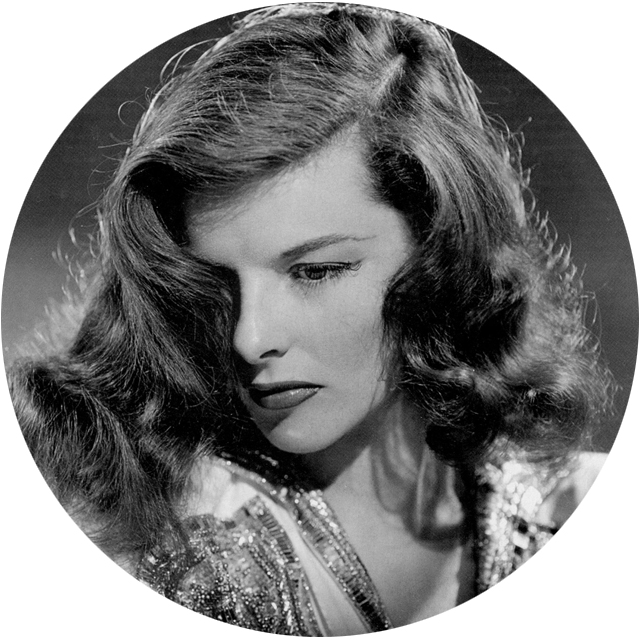
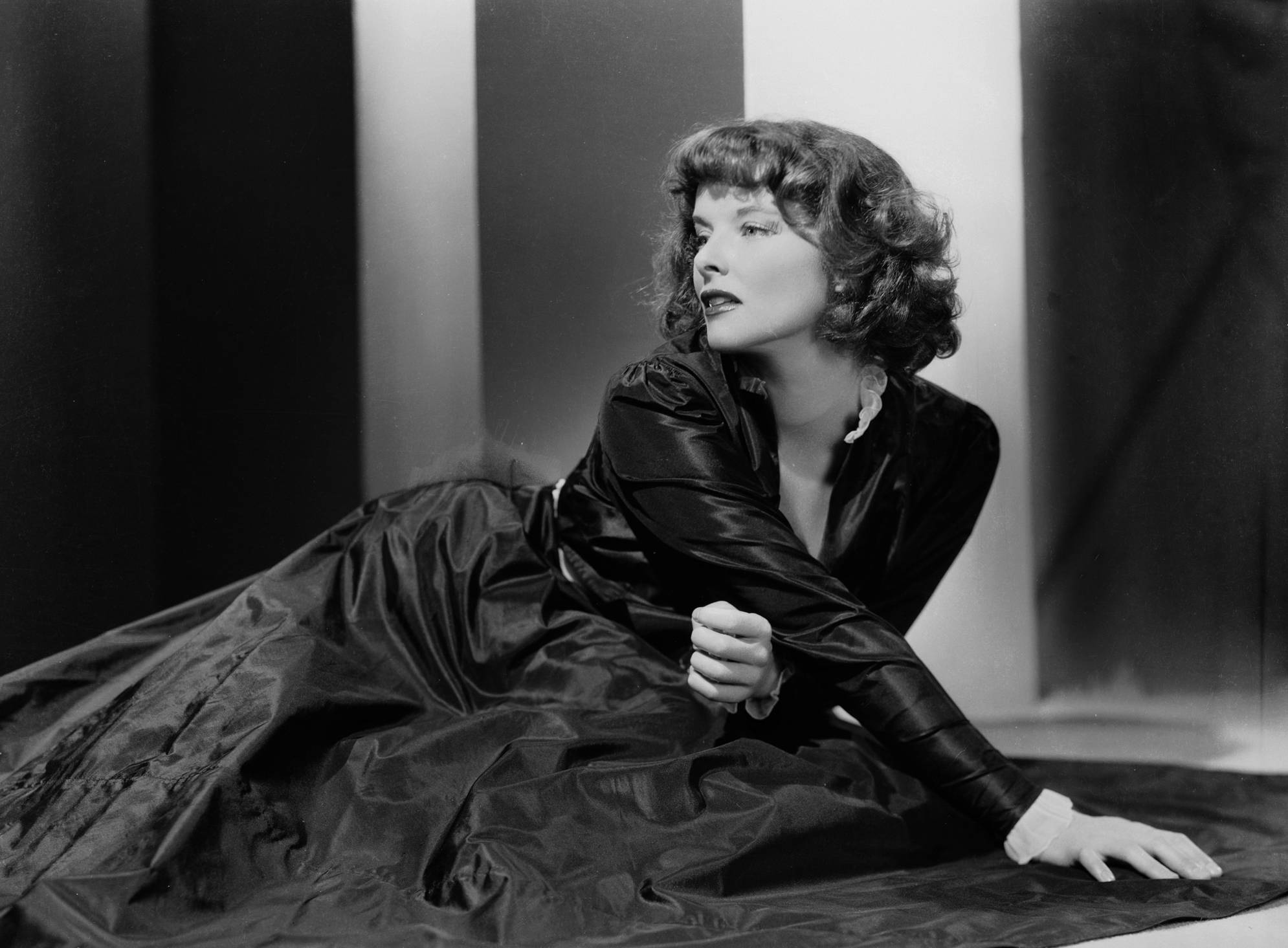
The idea that Mary Magdalene was the foremost of Jesus's disciples seems
credible because (1) a disciple named Mary is mentioned more frequently in the New Testament than most of the other disciples;
(2) she and John were the only disciples brave and loyal
enough to be present with Jesus at his crucifixion; (3) Mary was the
first disciple to recognize the meaning of the resurrection; (4) when the names
of the disciples are listed in the gospels, hers often comes first; and (5)
"Migdal" means tower, so her full appellation might mean something like "tower
of faith." According to the famous Christian theologian Augustine, Mary
Magdalene was "the apostle to the apostles." It has also been suggested that she
was either Jesus's wife, his lover, his mistress and/or the mother of his
children. According to all four gospels, Mary Magdalene was among the first and
primary witnesses of the resurrection and two of the four gospels say that the
first appearance of the resurrected Jesus was to her alone. So it seems
reasonable to say that if belief in the resurrected Christ is the basis of
Christianity, that Mary Magdalene was the first Christian.
The religious geniuses of all ages have been distinguished by this kind of
religious feeling, which knows no dogma and no God conceived in man's image; so
that there can be no church whose central teachings are based on it. Hence it is
precisely among the heretics of every age that we find men who were filled with
this highest kind of religious feeling and were in many cases regarded by their
contemporaries as atheists, sometimes also as saints. Looked at in this light,
men like Democritus, Francis of Assisi, and Spinoza are closely akin to one
another. ― Albert Einstein
Since Christianity theology makes no sense and never has, any intelligent
statement about Christianity is automatically a heresy. ― Michael R. Burch
Gypsy Rose Lee as Jezebel
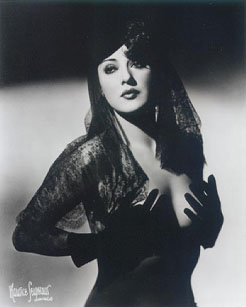
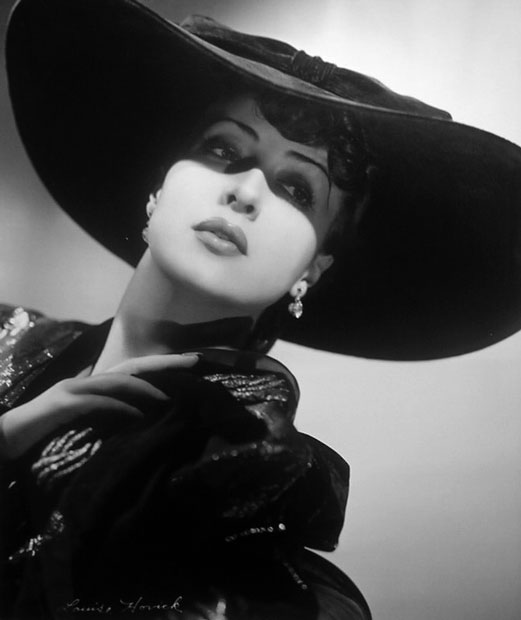
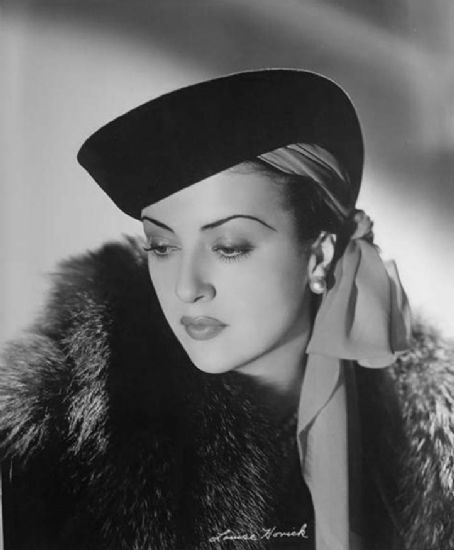
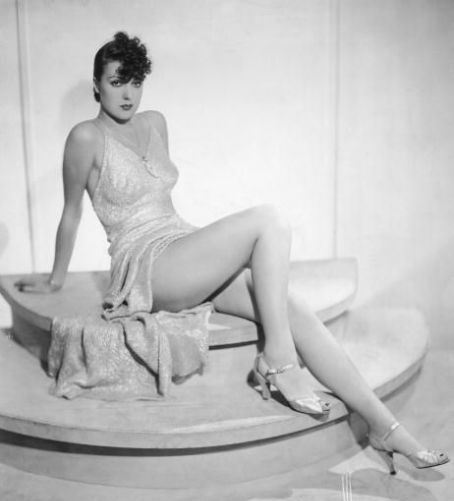
Gypsy Rose Lee was a famous burlesque performer known far and wide for
her stripteases. But she was also a dancer, actress, producer, author, and
playwright whose 1957 memoir was made into the stage musical and film Gypsy.
She also wrote a mystery novel called The G-String Murders and
co-produced a musical revue called Star and Garter. It is said that her
first striptease was accidental,
occurring when the strap of her gown broke and it fell to the floor during one of her acts. She went on to develop
a more casual style of striptease, emphasizing the "tease" and incorporating
humor. She was frequently arrested during police raids on her performances,
which would be considered to be quite tame and in good taste today.
There is no heresy or no philosophy which is so
abhorrent to the church as a human being. ― James Joyce
Lillian Gish as Lilith
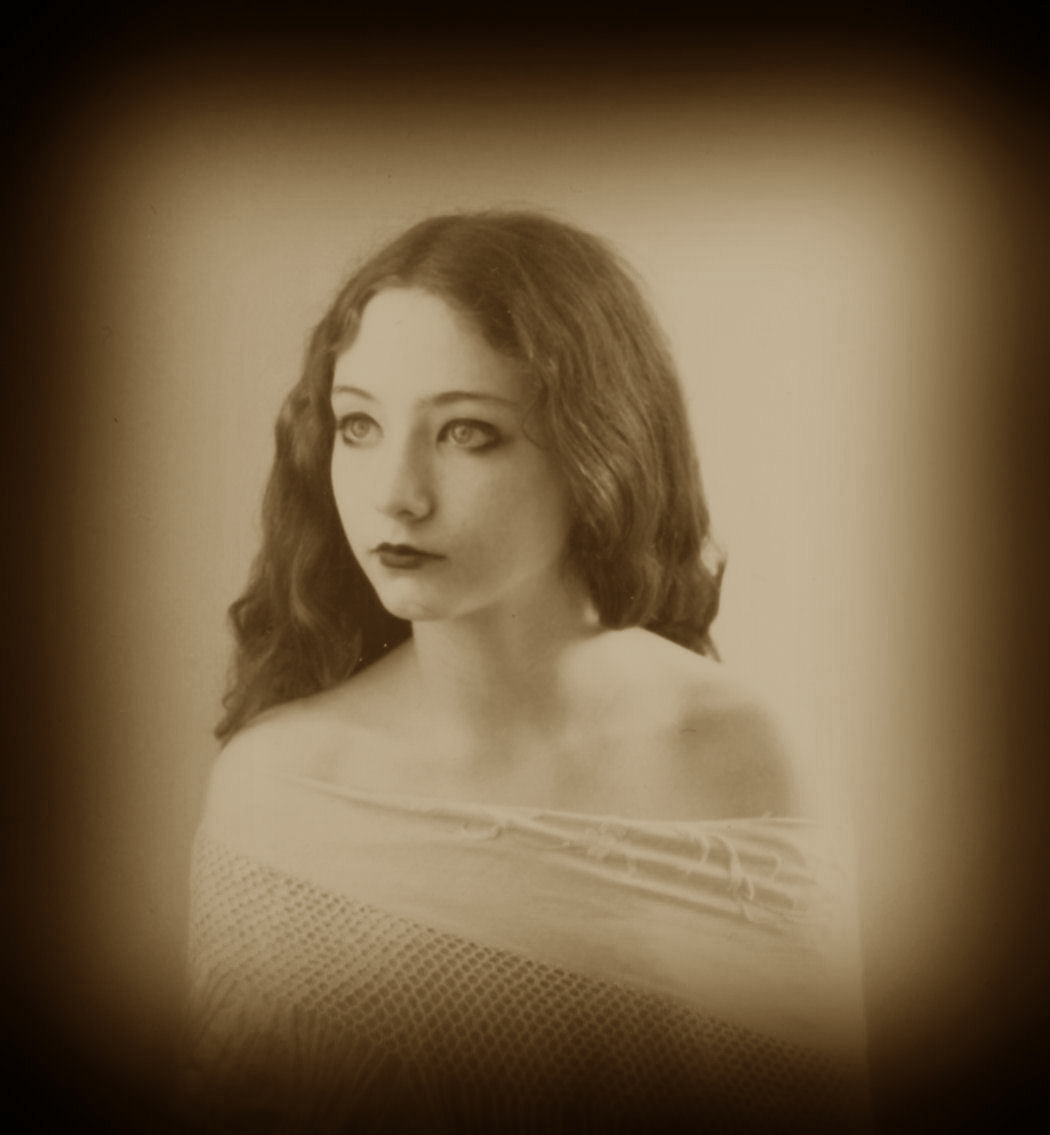
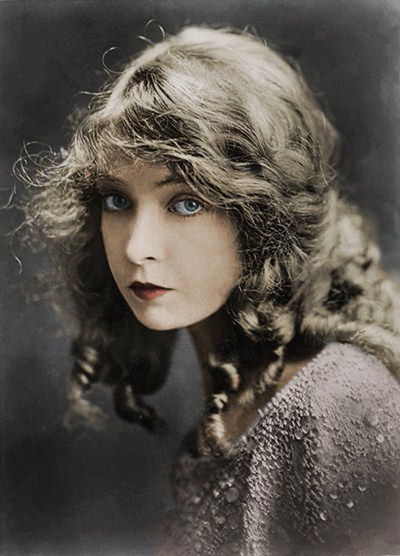
Lillian Gish has been called "The First Lady of American Cinema." She
once remarked with pride, "I played a lewd Ophelia." But she also said, "Young
man, if God had wanted you to see me that way, he would have put your eyes in
your bellybutton."
Since man cannot live without miracles, he will provide himself with
miracles of his own making. He will believe in witchcraft and sorcery, even
though he may otherwise be a heretic, an atheist, and a rebel. ― Fyodor
Dostoyevsky
Scarlett Johansson as Joan of Arc

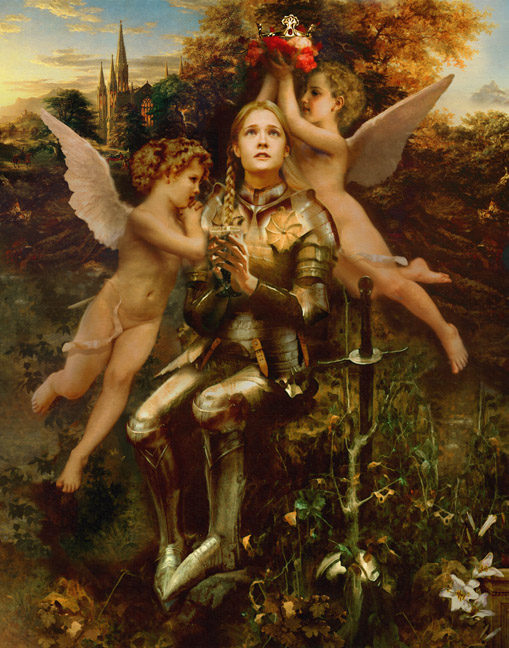
Joan of Arc by Howard David Johnson (above)
If we have no heretics we must invent them, for heresy
is essential to health and growth. ― Yevgeny Zamyatin
Sappho, the most Notorious Artist of all time?
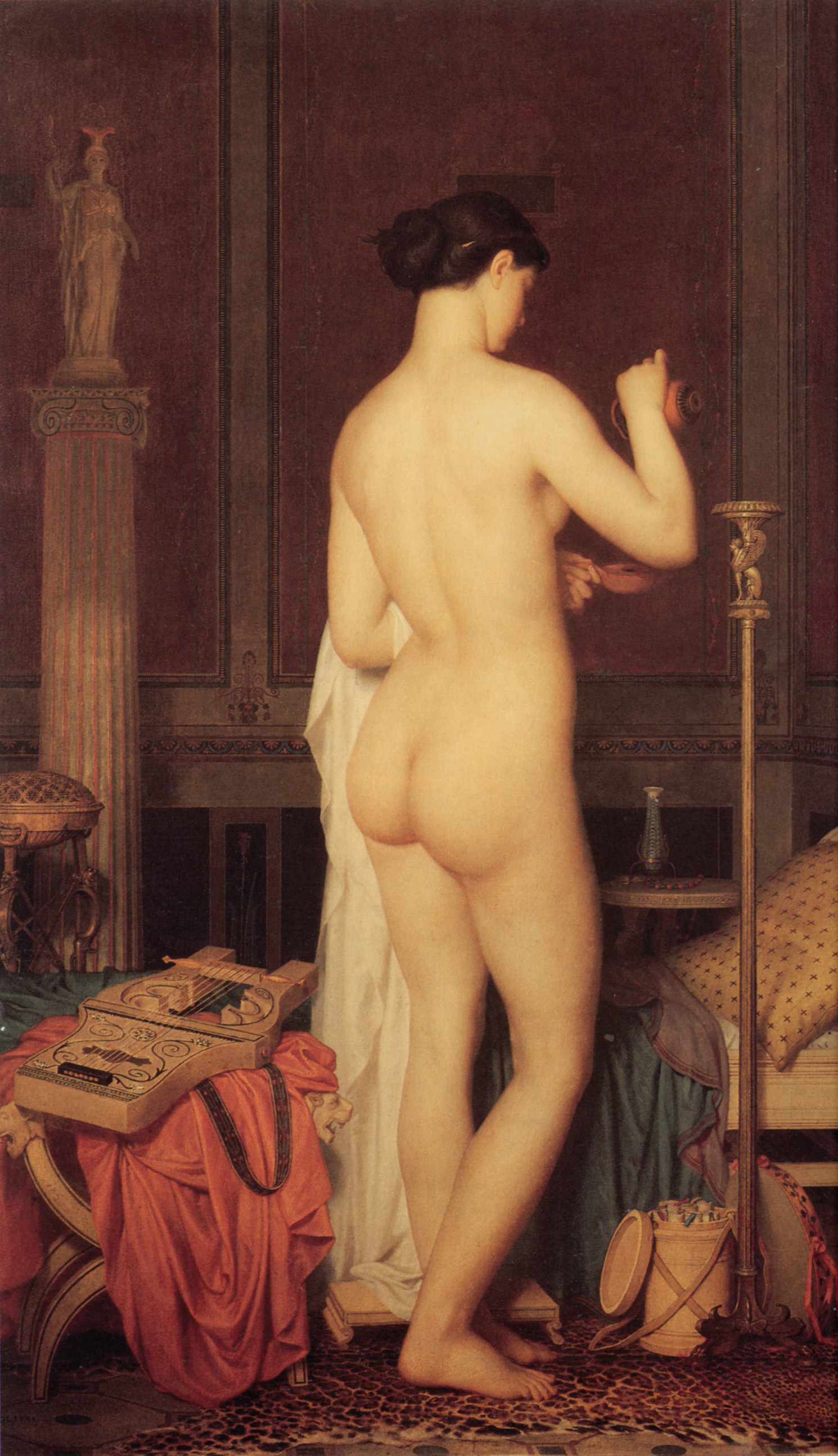
Gleyre Le Coucher de Sappho
by Marc-Charles-Gabriel Gleyre
Sappho of Lesbos is perhaps the first great female poet still known to us today,
and she remains one of the very best poets of all time, regardless of gender.
She is so notorious that we get our terms "sapphic" and "lesbian" from her name
and island of residence. As you can see from the two utterly stellar epigrams
below, she remains a timeless treasure:
Sappho, fragment 42
loose translation by Michael R. Burch
Eros harrows my heart:
a wind on desolate mountains
uprooting oaks.
The world is kept alive only by heretics: the heretic
Christ, the heretic Copernicus, the heretic Tolstoy. Our symbol of faith is
heresy. ― Yevgeny Zamyatin
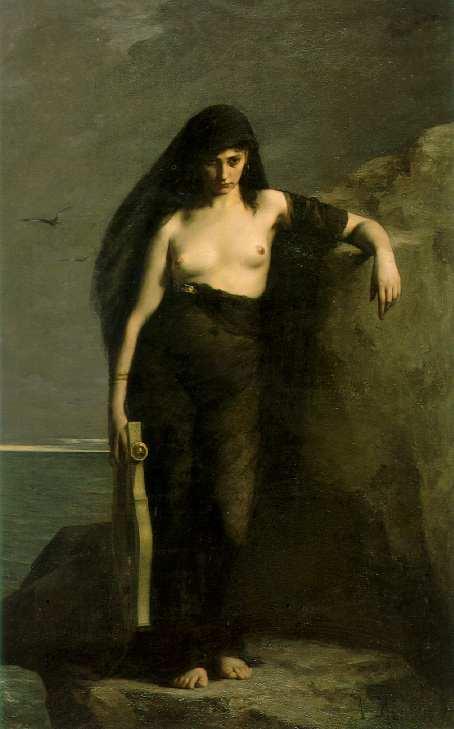
Artistic rendering of Sappho by William Adolphe Bouguereau
Sappho, fragment 155
loose translation by Michael R. Burch
A short transparent frock?
It's just my luck
your lips were made to mock!
It is dangerous to be right in matters on which the established authorities
are wrong. ― Voltaire
The Divine Oscar Wilde, Notoriety Personified?
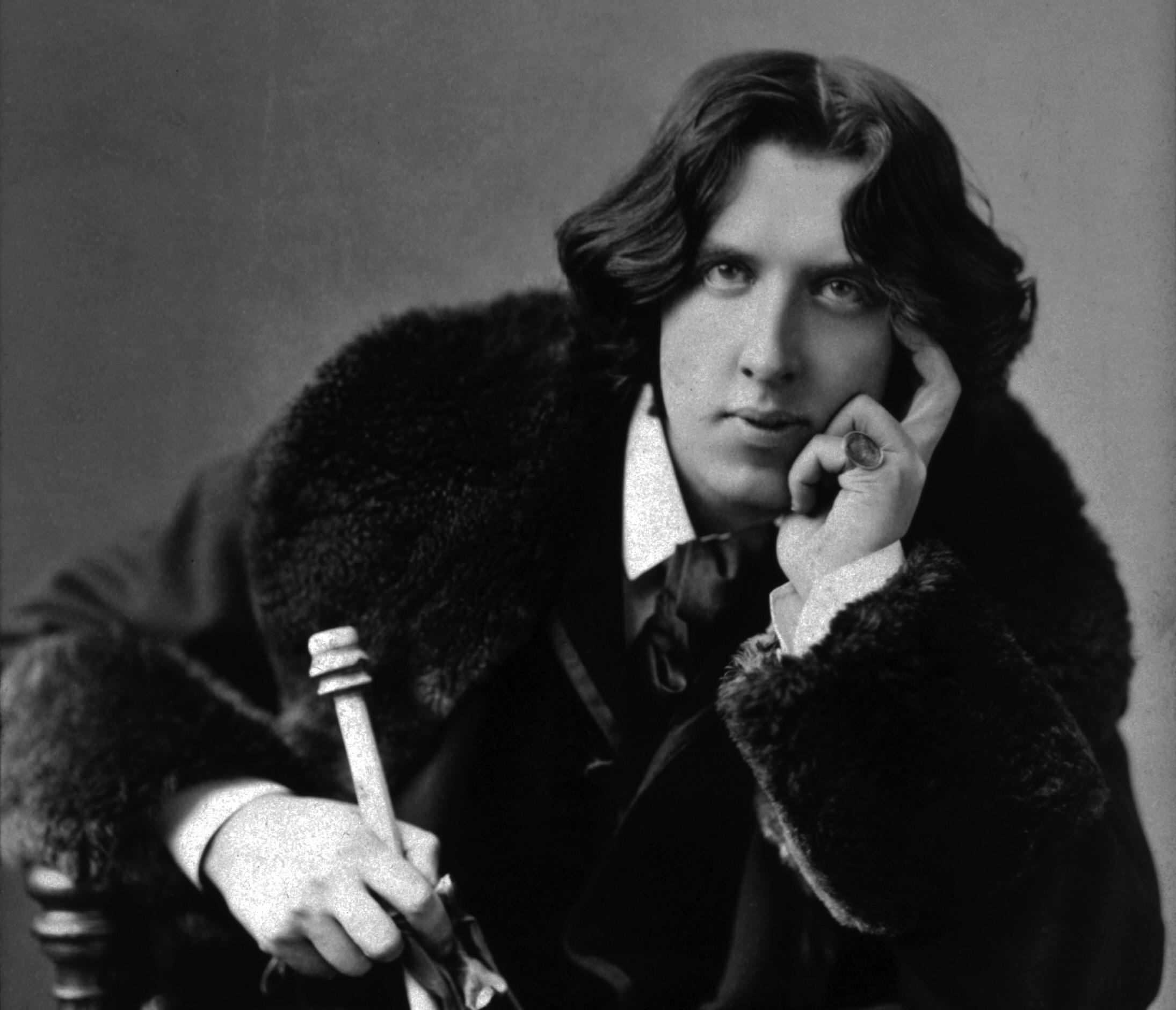
Oscar Wilde may be the most notorious "bad boy" in the annals of poetry and
literature. He was flamboyantly gay
at a time when polite society was prim, proper and violently homophobic. As a
result, he was sentenced to
hard labor at Reading Gaol and died soon after his release. Wilde is justly famous
today for his disdain for "respectability" and dull and dulling conformity, as his witty epigrams
prove:
Scandal is gossip made tedious by morality.
I can resist everything except temptation.
I believe God in creating Man somewhat overestimated his ability.
Whenever a man does a thoroughly stupid thing, it is always from the noblest motives.
There is no sin except stupidity.
Every saint has a past and every sinner has a future.
We are all in the gutter, but some of us are looking at the stars.
"Heresy," by the way, simply means "choice." It came to
mean "thought crime," implying it was blasphemy to presume to choose your own
belief instead of swallowing what the bishops spoonfed you. ― Robert M. Price
Dorothy Parker, Wild as Wilde?
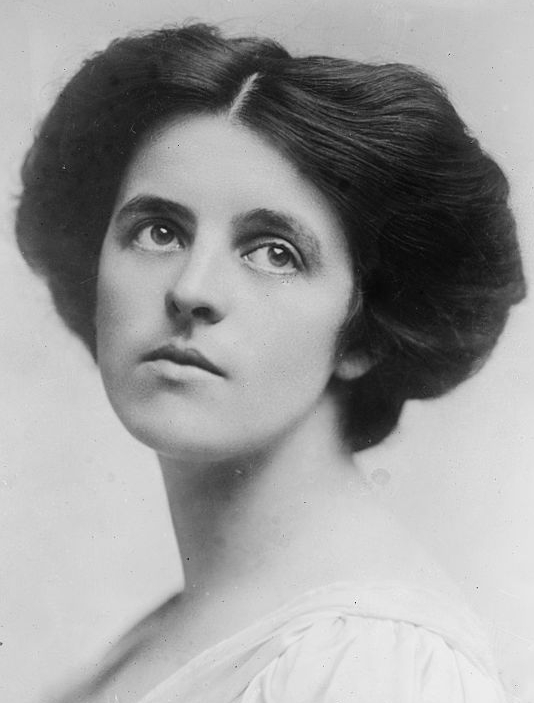
Dorothy Parker was perhaps Oscar Wilde's female double, or at the very least his
kindred spirit. Like Wilde, she left us a trove of witty epigrams:
That woman speaks eight languages and can't say "no" in any of them.
If all the girls who attended the Yale prom were laid end to end, I wouldn't be a bit surprised.
If you want to know what God thinks of money, just look at the people he gave it to.
One century's saint is the next century's heretic ... and one century's
heretic is the next century's saint. It is as well to think long and calmly
before affixing either name to any man. ― Ellis Peters
Cher as Cleopatra
Cleopatra was consort and lover to two of the most powerful men of
ancient times: Julius Caesar and Mark Anthony.
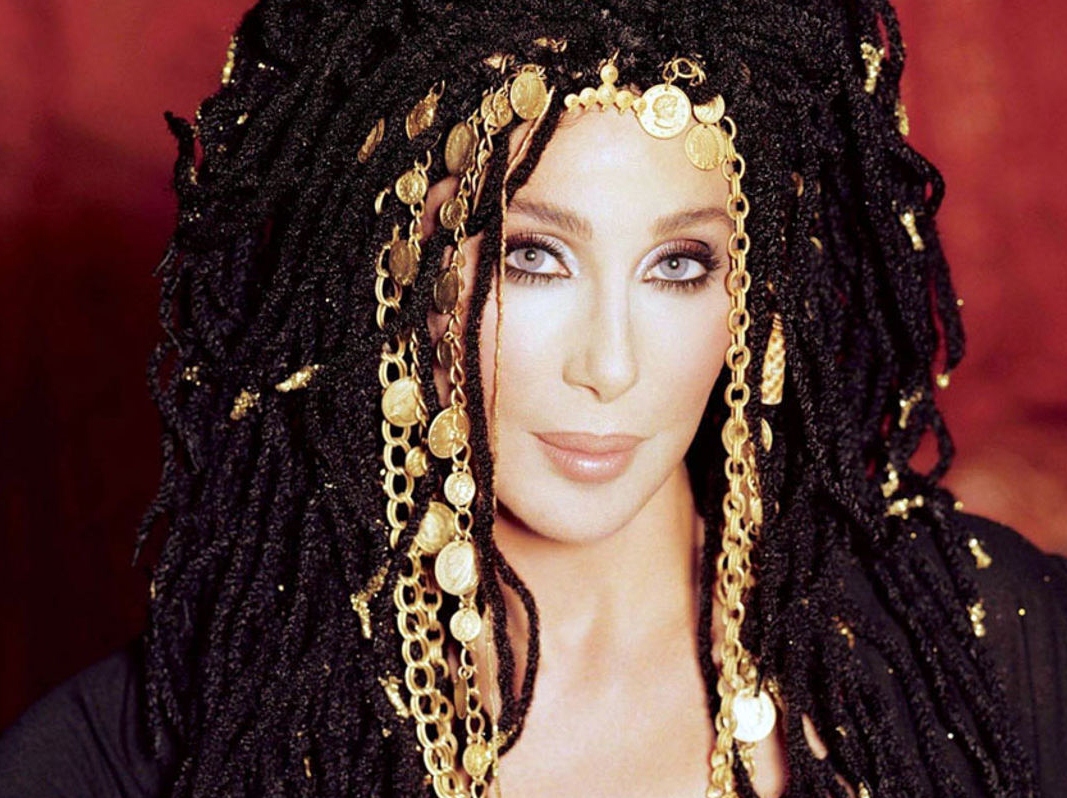
The doctrine of
eternal punishment is in perfect harmony with the savagery of the men who made
the orthodox creeds. It is in harmony with torture, with flaying alive, and with
burnings. The men who burned their fellow-men for a moment, believed that God
would burn his enemies forever. ― Robert G. Ingersoll
Sylvia Plath
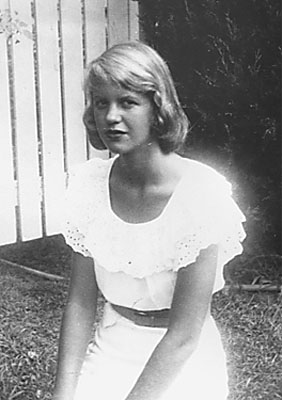
Sylvia Plath was one of the first and best of the modern confessional poets. She
won a Pulitzer Prize posthumously for her Collected Poems after
committing suicide at the age of 31, something she seemed to have been
predicting in her writing and practicing for in real life. For instance, in 1950
as a college student she had slashed her legs to see if she had the courage to
commit suicide, after failing to meet the great Welsh poet Dylan Thomas as she
had hoped. (Many of the events that took place around that time would later be
used as inspiration for her semi-autobiographical novel The Bell Jar.)
A few years later she attempted suicide for the first time by crawling under her
house and taking her mother's sleeping pills. She spent three days in the crawl
space, thinking the blackness she experienced was "eternal oblivion." She
eventually ended her life on February 11, 1963, by sticking her head in an oven
and turning on the gas. After her death, women in the feminist movement
came to see Plath as a voice speaking for them. Honor Moore
opined: "When Sylvia Plath’s Ariel was published in the United States
in 1966, American women noticed. Not only women who ordinarily read poems, but
housewives and mothers whose ambitions had awakened ... Here was a woman,
superbly trained in her craft, whose final poems uncompromisingly charted female
rage, ambivalence, and grief, in a voice with which many women identified."
Edge
The woman is perfected.
Her dead
Body wears the smile of accomplishment,
The illusion of a Greek necessity
Flows in the scrolls of her toga,
Her bare
Feet seem to be saying:
We have come so far, it is over.
Each dead child coiled, a white serpent,
One at each little
Pitcher of milk, now empty.
She has folded
Them back into her body, as petals
Of a rose close when the garden
Stiffens and odors bleed
From the sweet, deep throats of the night flower.
The moon has nothing to be sad about,
Staring from her hood of bone.
She is used to this sort of thing.
Her blacks crackle and drag.
It is strange the way that someone who wants to find
you guilty can start to make you believe in your own guilt, even when you know
you are innocent. ― S. J. Parris
Anne Sexton
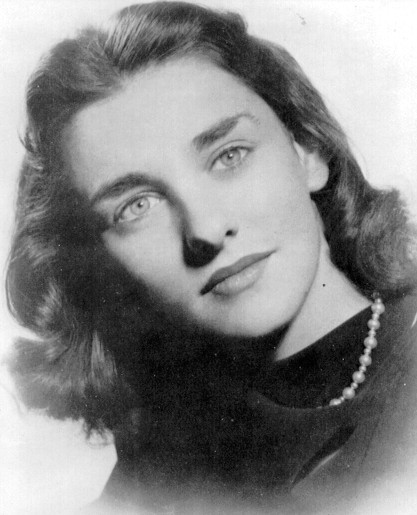
Anne Sexton was a model who became a confessional
poet, writing about intimate aspects of her life, after her doctor suggested
that she take up poetry as a form of therapy. She studied under Robert Lowell at
Boston University, where Sylvia Plath was one of her classmates. Sexton won the
Pulitzer Prize for Poetry in 1967, but later committed suicide via carbon
monoxide poisoning. Topics she covered in her poems included adultery,
masturbation, menstruation, abortion, despair and suicide.
The Truth the Dead Know
by Anne Sexton
For my Mother, born March 1902, died March 1959
and my Father, born February 1900, died June 1959
Gone, I say and walk from church,
refusing the stiff procession to the grave,
letting the dead ride alone in the hearse.
It is June. I am tired of being brave.
We drive to the Cape. I cultivate
myself where the sun gutters from the sky,
where the sea swings in like an iron gate
and we touch. In another country people die.
My darling, the wind falls in like stones
from the whitehearted water and when we touch
we enter touch entirely. No one's alone.
Men kill for this, or for as much.
And what of the dead? They lie without shoes
in the stone boats. They are more like stone
than the sea would be if it stopped. They refuse
to be blessed, throat, eye and knucklebone.
Clergy had a vested interest in retaining the old
ways, which made few demands of them as teachers, as spiritual guides, or as
moral examples or agents. ― Alister E. McGrath
Heresy kicks ass. ― P.S. Baber
William Butler Yeats and Maud Gonne
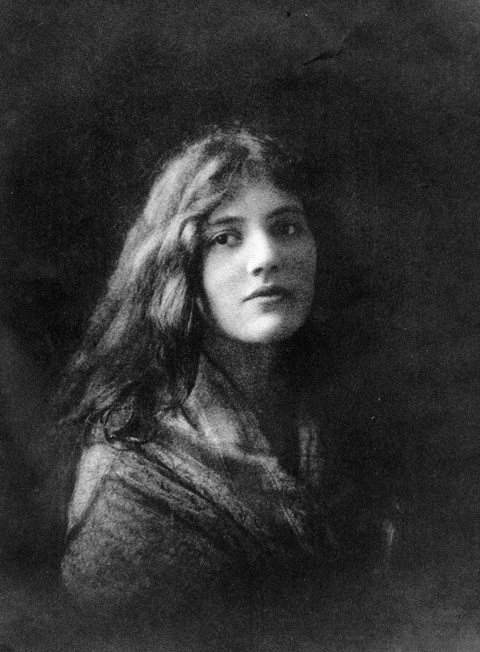
William Butler Yeats was the most famous Irish poet of all time, and his
unrequited love for Maud Gonne helped make her almost as famous as he was in
Ireland. Yeats dabbled in the occult, automatic writing, séances,
mysticism, spiritualism, hermeticism and astrology. When he
was admitted into the Golden Dawn, he took the magical motto
Daemon est Deus inversus—"Devil is God inverted." The moving poem
below is Yeats' loose translation of a Ronsard poem, in which Yeats imagines the
love of his life in her later years tending a fire.
When You Are Old
by William Butler Yeats
When you are old and grey and full of sleep,
And nodding by the fire, take down this book,
And slowly read, and dream of the soft look
Your eyes had once, and of their shadows deep;
How many loved your moments of glad grace,
And loved your beauty with love false or true,
But one man loved the pilgrim soul in you,
And loved the sorrows of your changing face;
And bending down beside the glowing bars,
Murmur, a little sadly, how Love fled
And paced upon the mountains overhead
And hid his face amid a crowd of stars.
All right, so you believe in Santa Claus, and I'll
believe in the Great Pumpkin. The way I see it, it doesn't matter what you
believe, just so you're sincere! (Linus) ― Charles M. Schulz
Edna St. Vincent Millay
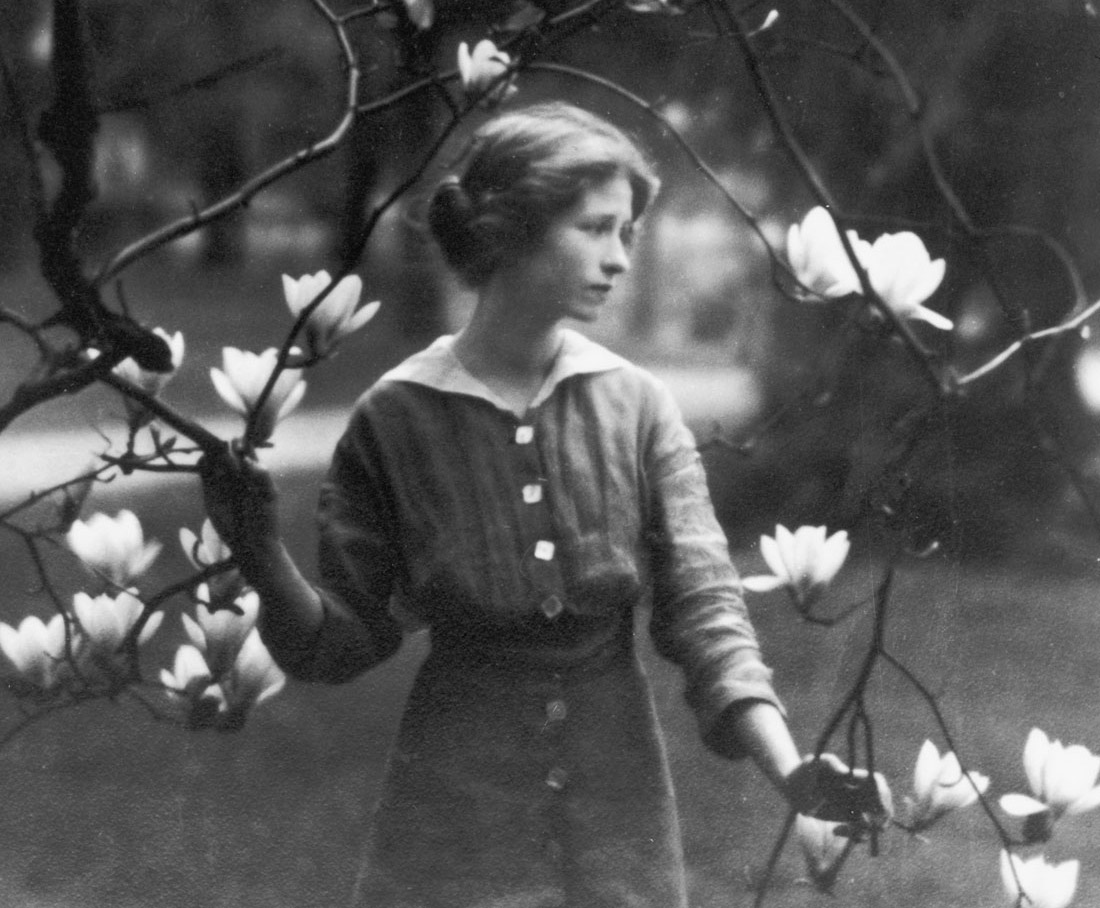
Edna St. Vincent Millay was the first woman to win a Pulitzer Prize for poetry.
She was openly bisexual and had affairs with other women and married men. When
she finally married, hers was an open marriage. Her 1920 poetry collection A
Few Figs From Thistles drew controversy for its novel exploration of female
sexuality. She was one of the earliest and strongest voices for what became
known as feminism. One of the recurring themes of her poetry was that men might
use her body, but not possess her or have any claim over her. (And perhaps that
their desire for her body gave her the upper hand in relationships.)
I, Being Born a Woman, and Distressed
by Edna St. Vincent
Millay
I, being born a woman, and distressed
By all the needs and notions of my kind,
Am urged by your propinquity to find
Your person fair, and feel a certain zest
To bear your body's weight upon my breast:
So subtly is the fume of life designed,
To clarify the pulse and cloud the mind,
And leave me once again undone, possessed.
Think not for this, however, this poor treason
Of my stout blood against my staggering brain,
I shall remember you with love, or season
My scorn with pity — let me make it plain:
I find this frenzy insufficient reason
For conversation when we meet again.
I believe that, in the end, even the devils will be pardoned. ― S.J. Parris
Anne Bradstreet
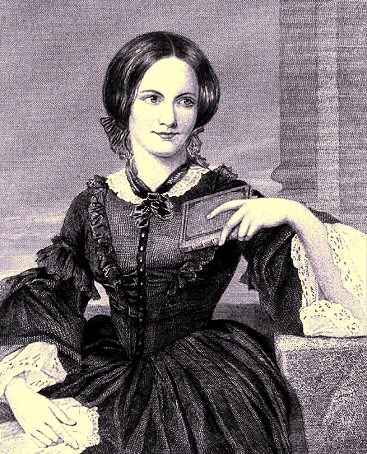
Anne Dudley Bradstreet was America's first published poet, called the "tenth
Muse," and a free thinker and early feminist. In her poem "The Prologue, she
pointed out how the chauvinistic society of her day
unfairly criticized women's accomplishments:
I am obnoxious to each carping tongue
Who says my hand a needle better fits,
A poet's pen all scorn I should thus wrong.
For such despite they cast on female wits:
If what I do prove well, it won't advance,
They'll say it's stol'n, or else it was by chance.
This authority stood steady as the cathedral itself.
The building was raised once and for all, and for those who dare doubt it,
something else was raised: The witch fires. ― André Bjerke
Dylan Thomas
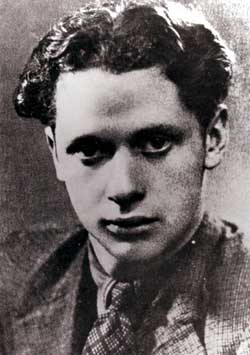
Dylan Thomas died after a multi-day drinking binge in which he was quoted as
saying, "I've had 18 straight whiskies. I think that's the record!" Thomas was
admitted to the emergency ward at St Vincent's Hospital in a comatose state, and
his medical notes state that the "impression upon admission was acute alcoholic
encephalopathy damage to the brain by alcohol, for which the patient was treated
without response". His wife Caitlin flew to America the next day and was taken
to the hospital. Her first reported words were, "Is the bloody man dead yet?"
Later, in a drunken rage, she threatened to kill another poet, John Brinnin.
When she became uncontrollable, she was put in a straight-jacket and committed
to the River Crest private psychiatric detox clinic on Long Island.
Do Not Go Gentle Into That Good Night
by Dylan Thomas
Do not go gentle into that good night,
Old age should burn and rave at close of day;
Rage, rage against the dying of the light.
Though wise men at their end know dark is right,
Because their words had forked no lightning they
Do not go gentle into that good night.
Good men, the last wave by, crying how bright
Their frail deeds might have danced in a green bay,
Rage, rage against the dying of the light.
Wild men who caught and sang the sun in flight,
And learn, too late, they grieved it on its way,
Do not go gentle into that good night.
Grave men, near death, who see with blinding sight
Blind eyes could blaze like meteors and be gay,
Rage, rage against the dying of the light.
And you, my father, there on the sad height,
Curse, bless, me now with your fierce tears, I pray.
Do not go gentle into that good night.
Rage, rage against the dying of the light.
The faith a movement proclaims doesn't count: what
counts is the hope it offers. All heresies are the banner of a reality, an
exclusion. Scratch the heresy and you will find the leper. Every battle against
heresy wants only this: to keep the leper as he is. ― Umberto Eco
Lord Byron
George Gordon, Lord Byron, was one of the most notorious
poets of all time. While Byron is justly famous for his poetry, he is perhaps
even more infamous for his many love affairs, including a possibly incestuous
one with his half-sister, Augusta Leigh, and homosexual ones
with fellow students at Harrow and Cambridge. His mother once wrote that her son
"has no indisposition that I know of but love, desperate love, the worst of all
maladies in my opinion." He was renowned for his personal beauty, which he
enhanced by wearing curl-papers in his hair at night. Plagued by scandalous
rumors of incest, sodomy, adultery with actresses and marital violence, Byron
eventually left England, never to return. After his death, some of his
friends burned his autobiography, perhaps considering it too
notorious to be read by polite society.
So We'll Go No More A-Roving
So we'll go no more a-roving
So late into the night,
Though the heart be still as loving,
And the moon be still as bright.
For the sword outwears its sheath,
And the soul outwears the breast,
And the heart must pause to breathe,
And love itself have rest.
Though the night was made for loving,
And the day returns too soon,
Yet we'll go no more a-roving
By the light of the moon.
Perchance you who pronounce my sentence are in greater
fear than I who receive it. ― Giordano Bruno, burned at the stake for
pointing out the the earth's sun is one star among many
Percy Bysshe Shelley and Mary Wollstonecraft Shelley
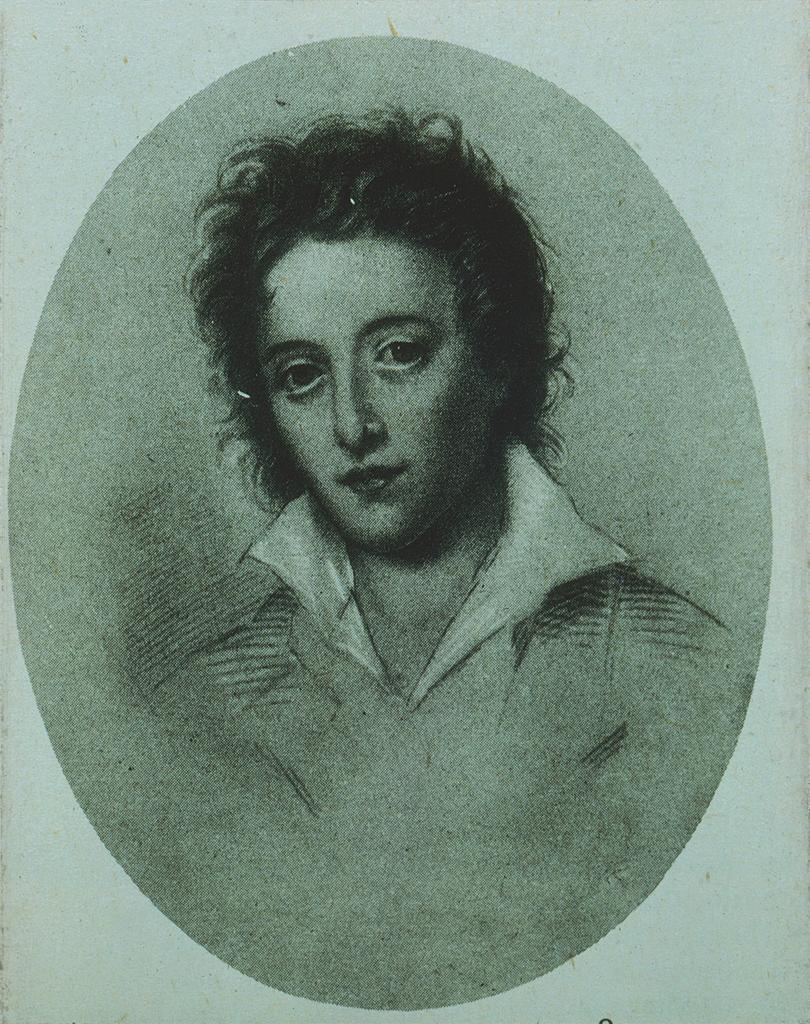
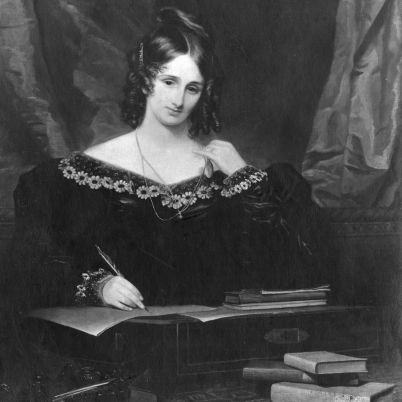
Percy Bysshe Shelley and Mary Wollstonecraft Shelley may have been the most notorious married
couple of their era. He was a dashing romantic poet and heretic who wrote a
tract, "The Necessity of Atheism," that got him expelled from Oxford. He also
wrote in favor of nonviolence and against monarchies,
imperialism and war. She was the daughter of one of the earliest feminist
writers of note, Mary Wollstonecraft, and the liberal philosopher William
Godwin. Her parents had, for their day, a rather
shocking marriage, with multiple affairs and an illegitimate child born to her
mother. Thus the young Mary Wollstonecraft Godwin may have grown up with
unconventional ideas about sex and marriage. In 1814, at age seventeen, she
became romantically involved with Percy Shelley, who was married at the time but
threatened to commit suicide if she spurned his advances. They spent time
together in France and Switzerland; when they returned, Mary was pregnant. Percy's wife Harriet, who was also pregnant, committed suicide in 1816; Percy
and Mary married soon thereafter. The same year they spent the summer with Lord
Byron. It was at this time that Mary conceived the story that became her famous
gothic novel Frankenstein. In 1918 a baby girl, Elena Adelaide Shelley,
was born and registered in Italy as the daughter of Percy and a woman named
"Marina Padurin." However, the real identity of the mother remains an unsolved
mystery. In 1822, Percy drowned at sea at age thirty. Who knows what he would
have accomplished if he had lived longer, but he is still considered to be one
of the greatest English poets. Here is one especially lovely example of his
wonderful touch with rhythm and rhyme:
Music When Soft Voices Die (To
—)
Music, when soft voices die,
Vibrates in the memory—
Odours, when sweet violets sicken,
Live within the sense they quicken.
Rose leaves, when the rose is dead,
Are heaped for the belovèd's bed;
And so thy thoughts, when thou art gone,
Love itself shall slumber on.
Did he [Jesus] not mock at the sabbath, and so
mock the sabbath's God? murder those who were murder'd because of him? turn away
the law from the woman taken in adultery? steal the labor of others to support
him? bear false witness when he omitted making a defense before Pilate? covet
when he pray'd for his disciples, and when he bid them shake off the dust of
their feet against such as refused to lodge them? I tell you, no virtue can
exist without breaking these ten commandments; Jesus was all virtue, and acted
from impulse, not from rules. ― William Blake
Dante Gabriel Rossetti and Elizabeth Siddal
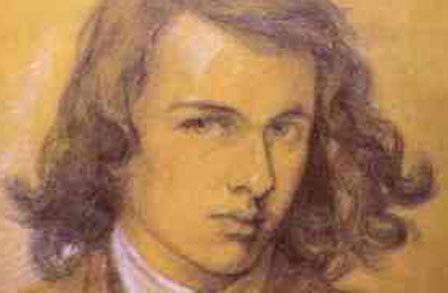
Self-Portrait, 1847
Dante Gabriel Rossetti was an English romantic poet, painter, illustrator and
translator. He was also one of the founders of the Pre-Raphaelite Brotherhood. His
art was characterized by sensuality and medieval revivalism. He frequently wrote
sonnets to accompany his works of visual art. In 1850 he met Elizabeth Siddal
(pictured below), who became his model, his passion, and eventually in 1860, his
wife. But around the time of his marriage, he began to paint a new model, his
new lover, Fanny Cornforth.
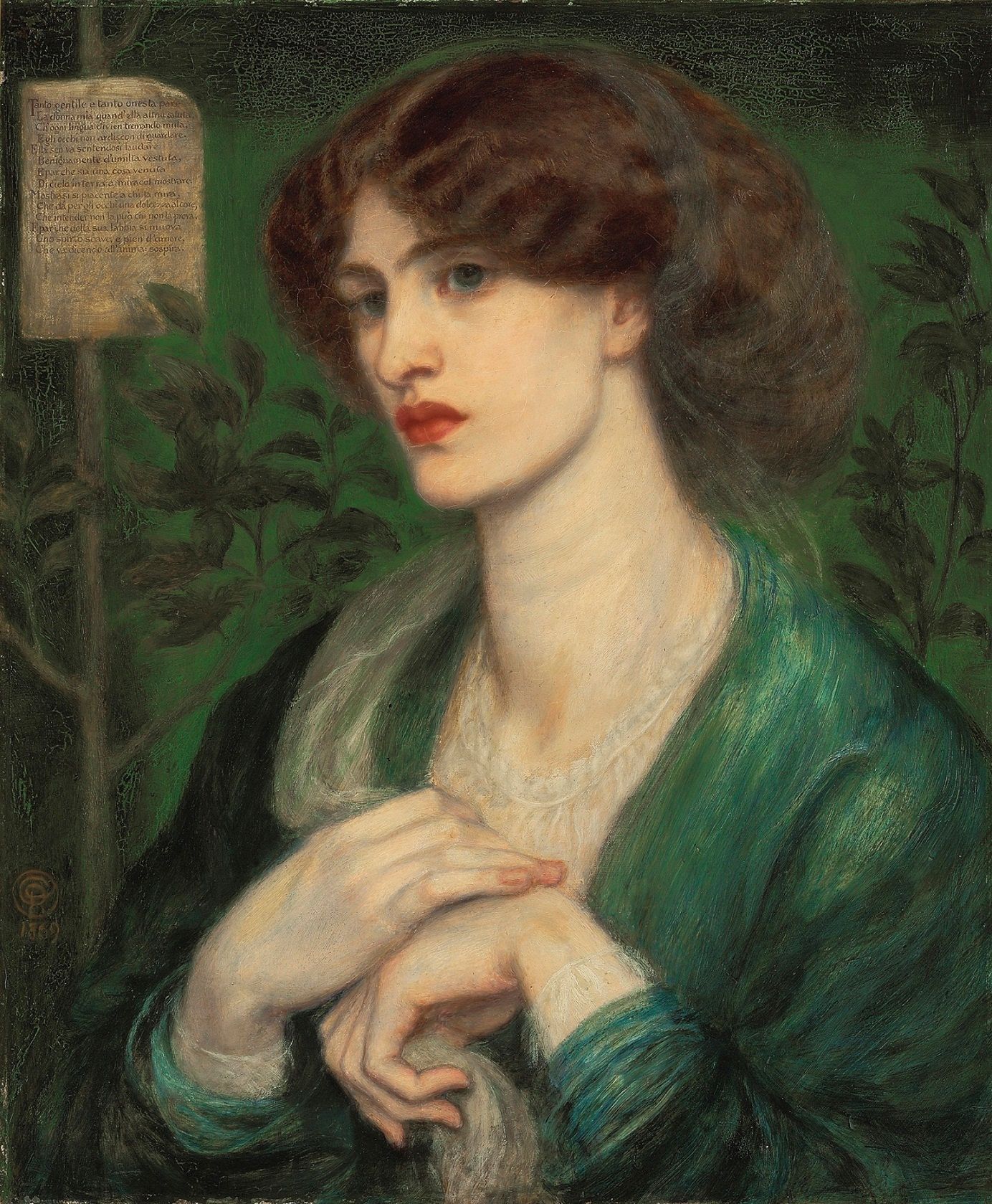
Elizabeth Siddal died of an overdose of laudanum in 1862, shortly after giving
birth to a stillborn child. Rossetti buried the bulk of his unpublished poems
with her at Highgate Cemetery, but he later had them dug up. He idealized her as
Dante's Beatrice in a number of paintings, such as Beata Beatrix (below).
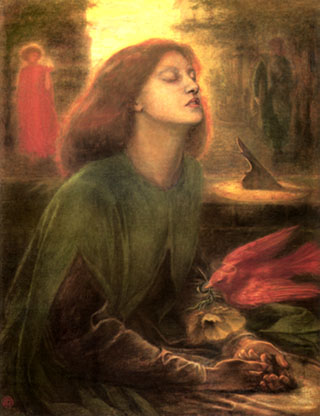
After his wife's death, Rossetti leased a house in Chelsea where he lived amid
extravagant furnishings and a parade of exotic birds and animals. He owned a pet
wombat named "Top" who was brought to the dinner table and allowed to sleep in
the large centerpiece during meals. He also owned a llama and a toucan. The
toucan was dressed in a cowboy hat and rode the llama around the dining table
for his amusement.
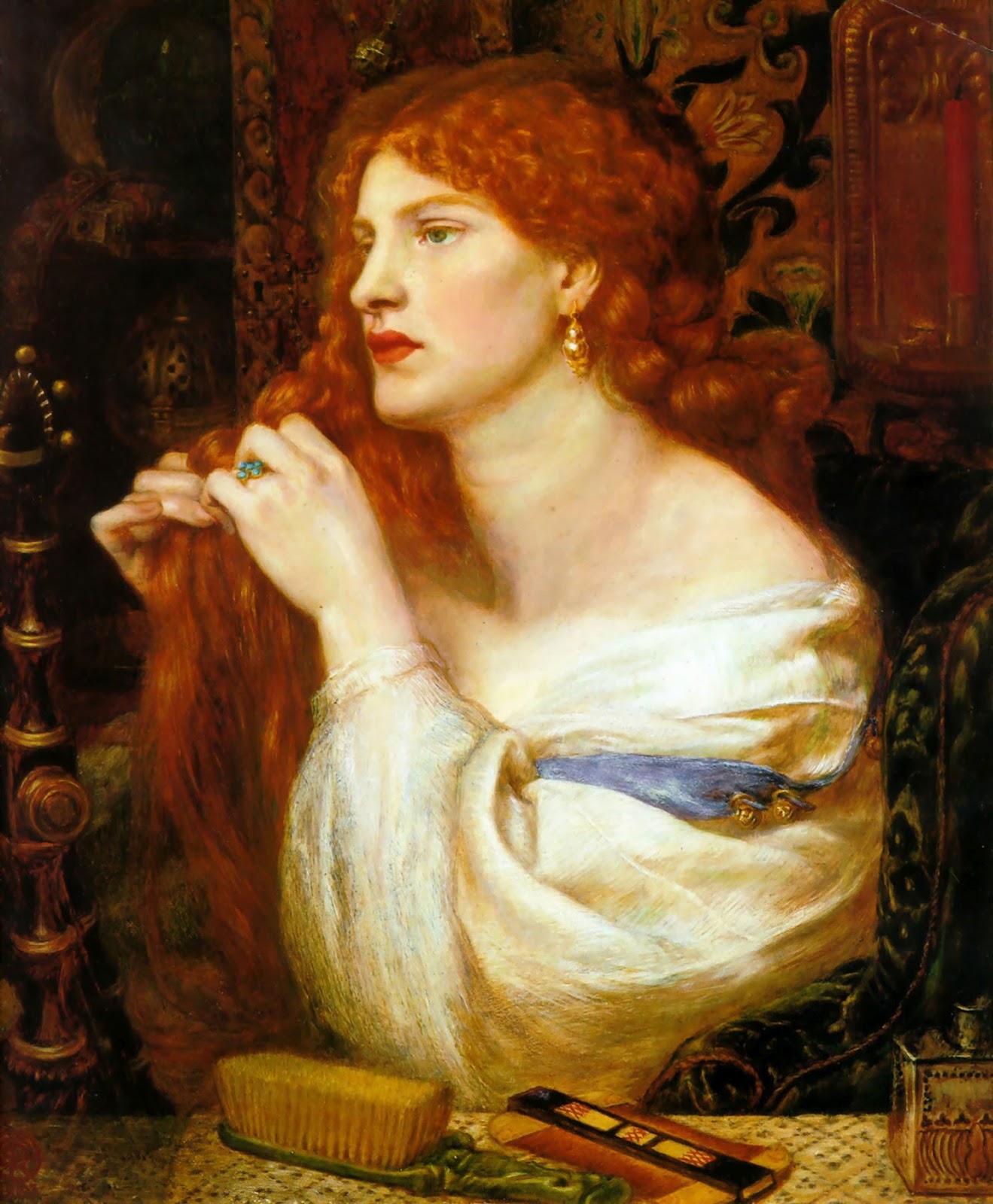
After Rossetti exhumed his poems from his wife's grave they were published in
1870. The poems were attacked as the epitome of the "fleshly school of poetry"
due to their eroticism and sensuality. The savage reaction of critics to
Rossetti's first collection of poetry contributed to a mental breakdown he
suffered in 1872, and he "spent his days in a haze of chloral and whisky". He
recovered enough to create a soulful series of dream-like portraits of his
favored models Alexa Wilding and Jane Morris. But toward the end of his life, he
sank into a morbid state, darkened by his drug addiction to chloral hydrate and
increasing mental instability. He spent his last years as a recluse.
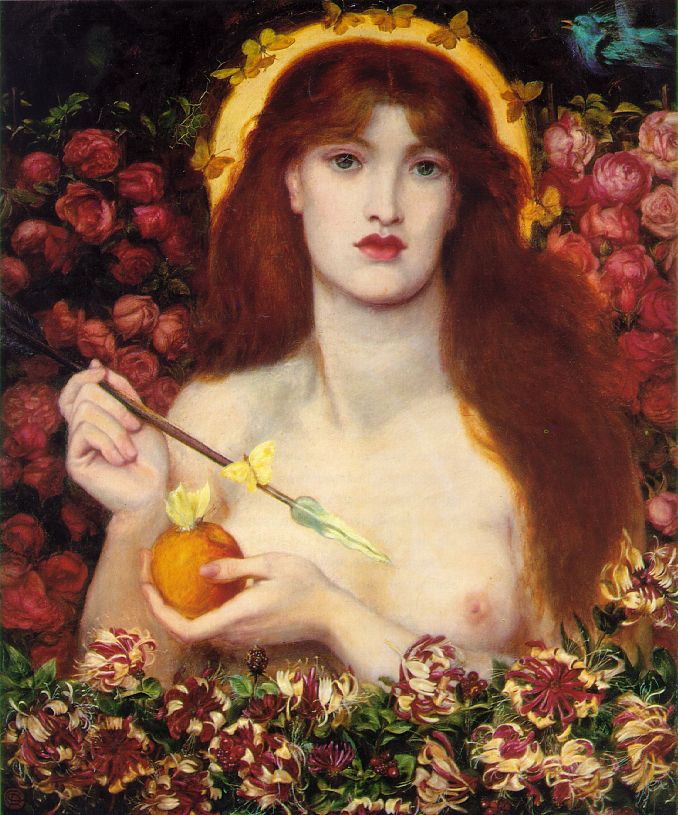
Christina Rossetti
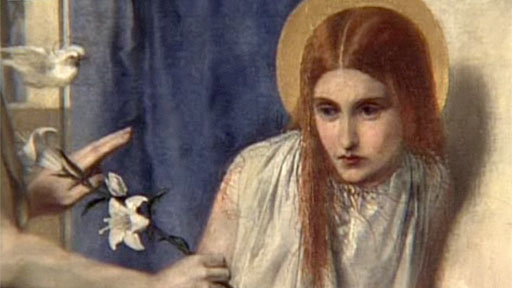
Christina Rossetti was the sister of Dante Gabriel Rossetti, and perhaps the
better poet.
Song
by Christina Rossetti
When I am dead, my dearest,
Sing no sad songs for me;
Plant thou no roses at my head,
Nor shady cypress tree:
Be the green grass above me
With showers and dewdrops wet;
And if thou wilt, remember,
And if thou wilt, forget.
I shall not see the shadows,
I shall not feel the rain;
I shall not hear the nightingale
Sing on, as if in pain:
And dreaming through the twilight
That doth not rise nor set,
Haply I may remember,
And haply may forget.
I may err but I am not a heretic, for the first has to
do with the mind and the second with the will! ― Meister Eckhart
Arthur Rimbaud and Paul Verlaine
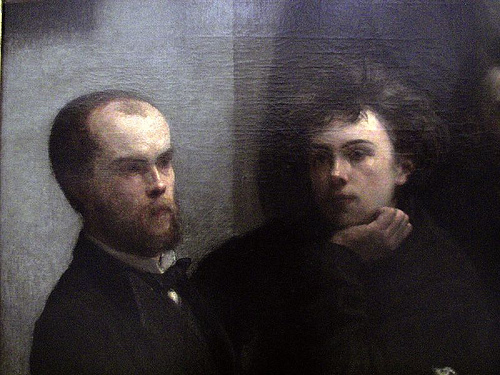
Arthur Rimbaud (on the right above and below) and Paul Verlaine (on the left
above) were French poets. Rimbaud was a child prodigy; he showed maturity as a
poet at age fifteen and is considered one of the greatest French poets even
though he stopped writing poetry by age twenty. When Rimbaud was seventeen, he
met Paul Verlaine and they began a torrid affair, even though Verlaine was
married and his wife, also seventeen, was pregnant. Together the two poets led a
wild, vagabond-like existence, indulging in sex, absinthe and hashish. Verlaine
abandoned his wife and infant son, both of whom he had abused in alcoholic rages.
But the poets' relationship also became increasingly violent. Finally, in a drunken rage,
Verlaine shot Rimbaud, wounding his left wrist. At first Rimbaud refused to
press charges, but when he felt that Verlaine's behavior was becoming bizarre to
the point of insanity, he begged a police officer to arrest his former lover.
Verlaine was subsequently sentenced to two years in prison. By age twenty
Rimbaud had given up poetry to become a soldier, deserter, stone quarry foreman,
gunrunner and slave trader, among other occupations. He died at age 37 shortly
after having his right leg amputated. After the shooting, Verlaine became a
convert to Catholicism and a school teacher. He died at age 51 of complications
from his drug abuse and alcoholism.
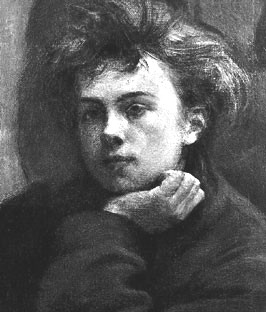
Here's a poem written by Rimbaud, at the age of sixteen or earlier:
Sensation
On the blue summer evenings, I shall go down the paths,
Getting pricked by the corn, crushing the short grass:
In a dream I shall feel its coolness on my feet.
I shall let the wind bathe my bare head.
I shall not speak, I shall think about nothing:
But endless love will mount in my soul;
And I shall travel far, very far, like a gipsy,
Through the countryside—as happy as if I were with a woman.
Sir Thomas Wyatt and Anne Boleyn
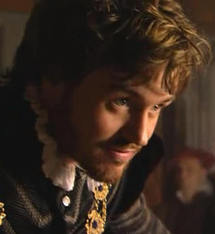

Sir Thomas Wyatt has been credited with introducing the
Petrarchan sonnet into the English language. His father, Henry Wyatt, had been one of Henry
VII's Privy Councilors, and remained a trusted adviser when Henry VIII came to
the throne in 1509. Thomas Wyatt followed his father to court. But it seems the
young poet may have fallen in love with the king’s mistress. Many legends and
conjectures suggest that an unhappily married Wyatt had a relationship with
Anne Boleyn. Their acquaintance is certain, but whether or not the two
actually shared a romantic relationship remains unknown. But in his poetry, Wyatt called
his mistress Anna, and sometimes embedded pieces of information that seem to correspond with
her life. For instance, this poem might well have been written
about the King’s claim on Anne Boleyn:
Whoso List to Hunt
Whoso list to hunt, I know where is an hind,
But as for me, alas, I may no more.
The vain travail hath wearied me so sore,
I am of them that farthest cometh behind.
Yet may I by no means my wearied mind
Draw from the deer, but as she fleeth afore
Fainting I follow. I leave off therefore,
Since in a net I seek to hold the wind.
Who list her hunt, I put him out of doubt,
As well as I may spend his time in vain.
And graven with diamonds in letters plain
There is written, her fair neck round about:
Noli me tangere, for Caesar's I am,
And wild for to hold, though I seem tame.
Noli me tangere means "Touch me not." According to the Bible, this is
what Jesus said to Mary Magdalene when she tried to embrace him after the
resurrection.
In May 1536, Wyatt was imprisoned in the Tower of London for allegedly
committing adultery with Anne Boleyn. He was released from the Tower later that
year, thanks to his friendship and his father's friendship with Thomas Cromwell. But during his stay in the Tower,
Wyatt may have
witnessed the execution of Anne Boleyn from his cell window, and the
executions of the five other men with whom she was accused of committing
adultery.
Virginia Woolf
Adeline Virginia Woolf was one of the leading early twentieth century modernists
and feminists. She was sexually abused by her half-brothers, had several nervous
breakdowns, and was institutionalized for a period of time, before finally
committing suicide by filling her pockets with stones and walking into the River
Ouse, where she drowned. She was bisexual or at least tentatively explored
lesbian sex with the writer Vita Sackville-West. In her novel Orlando
the titular hero shifts gender. She also denounced Christianity and at times
seemed to border on anti-Semitism in her writing despite being married to a "penniless Jew."
For most of history, Anonymous was a woman.
Each has his past shut in him like the leaves of a book known to him by heart, and his friends can only read the title.
One has to secrete a jelly in which to slip quotations down people's throats,
and one always secretes too much jelly.
Yet, it is true, poetry is delicious; the best prose is that which is most
full of poetry.
I want the concentration and the romance, and the worlds all glued together,
fused, glowing: have no time to waste any more on prose.
The history of men's opposition to women's emancipation is more interesting
perhaps than the story of that emancipation itself.
This is an important book, the critic assumes, because it deals with war.
This is an insignificant book because it deals with the feelings of women in a
drawing-room.
Life is not a series of gig lamps symmetrically arranged; life
is a luminous halo, a semi-transparent envelope surrounding us from the
beginning of consciousness to the end.
Renée Vivien
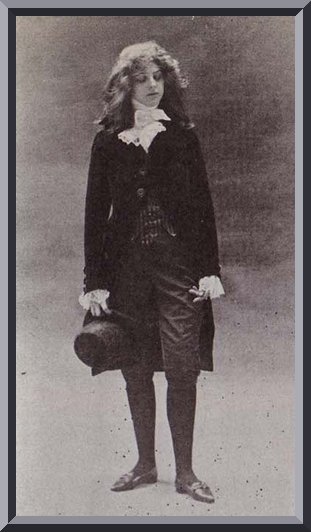
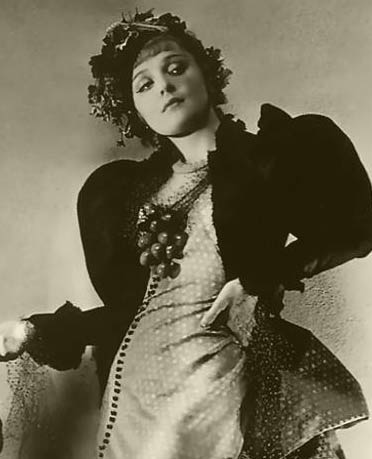
Renée Vivien (1877-1909) was a
British poet who wrote primarily in French. She was one of the last major poets
of Symbolism. Her work included sonnets, hendecasyllabic verse and prose poetry.
Born
Pauline Mary Tarn in London to a British father and American mother, she grew up in Paris and London. Upon inheriting her father's fortune at age 21,
she emigrated permanently to France. In Paris, her dress and lifestyle were as
notorious as her verse. She lived lavishly as an open lesbian, sometimes
dressing in men's clothes, while harboring a
lifelong obsession for her closest childhood friend, Violet Shillito (a
relationship that apparently remained unconsummated). Her obsession with violets
led to Vivien being called the "Muse of the Violets." But in 1900 Vivien abandoned
this chaste love to engage in a public affair with the American writer and
heiress Natalie Clifford Barney. The following year Shillito died of typhoid
fever, a tragedy from which Vivien never fully recovered. Vivien later had a
relationship with a baroness to whom she considered herself to be married, even
though the baroness had a husband and children. During her adventurous life,
Vivien indulged in alcohol, drugs, fetishes and sadomasochism. But she grew
increasingly frail and by the time of her death she weighed only 70 pounds,
quite possibly dying from the cumulative effects of anorexia, alcoholism and
drug abuse.
Song
loose translation by Michael R. Burch
When the moon weeps,
illuminating flowers on the graves of the faithful,
my memories creep
back to you, wrapped in flightless wings.
It's getting late; soon we will sleep
(your eyes already half closed)
steeped
in the shimmering air.
O, the agony of burning roses:
your forehead discloses
a heavy despondency,
though your hair floats lightly ...
In the night sky the stars burn whitely
as the Goddess nightly
resurrects flowers that fear the sun
and die before dawn ...
Emily Brontë
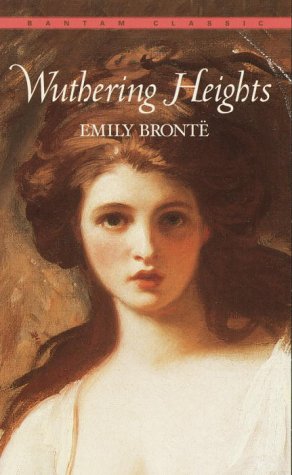
Emily Brontë was an English poet and novelist best known today for her bleak
Gothic novel Wuthering Heights, a book of amorous (perhaps even amoral)
passion. She lived a secluded life with her sisters, in which they created joint
fantasy worlds such as the one they called Gondal. Posing as the Bell brothers,
Emily and her sisters Anne and Charlotte published a book of poems together.
Emily Brontë died at age 30, perhaps from being poisoned by foul runoff from a
nearby church graveyard. In the picture below, Anne, Emily and Charlotte Brontë
have been painted by their brother Branwell.
Elinor Wylie
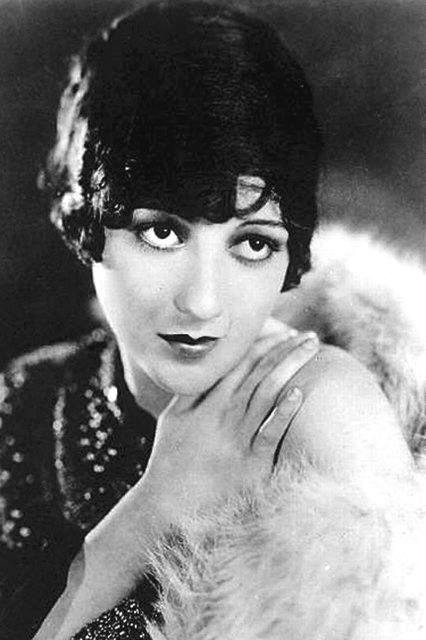
Elinor Wylie "was famous during her life almost as much for her ethereal beauty
and personality as for her melodious, sensuous poetry."
Cold-Blooded Creatures
by Elinor Wylie
Man, the egregious egoist
(In mystery the twig is bent)
Imagines, by some mental twist,
That he alone is sentient
Of the intolerable load
That on all living creatures lies,
Nor stoops to pity in the toad
The speechless sorrow of his eyes.
He asks no questions of the snake,
Nor plumbs the phosphorescent gloom
Where lidless fishes, broad awake,
Swim staring at a nightmare doom.
Emily Dickinson
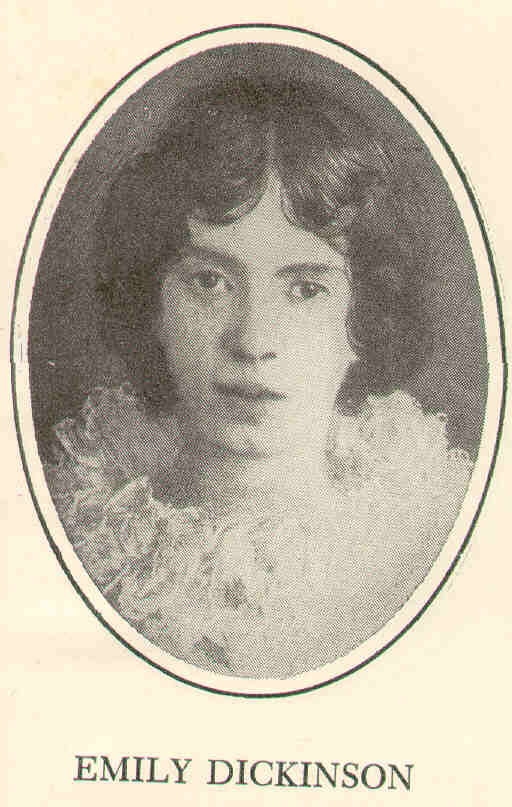
Come slowly, Eden
by Emily Dickinson
Come slowly, Eden
Lips unused to thee.
Bashful, sip thy jasmines,
As the fainting bee,
Reaching late his flower,
Round her chamber hums,
Counts his nectars—alights,
And is lost in balms!
Anne Reeve Aldrich: American Sappho
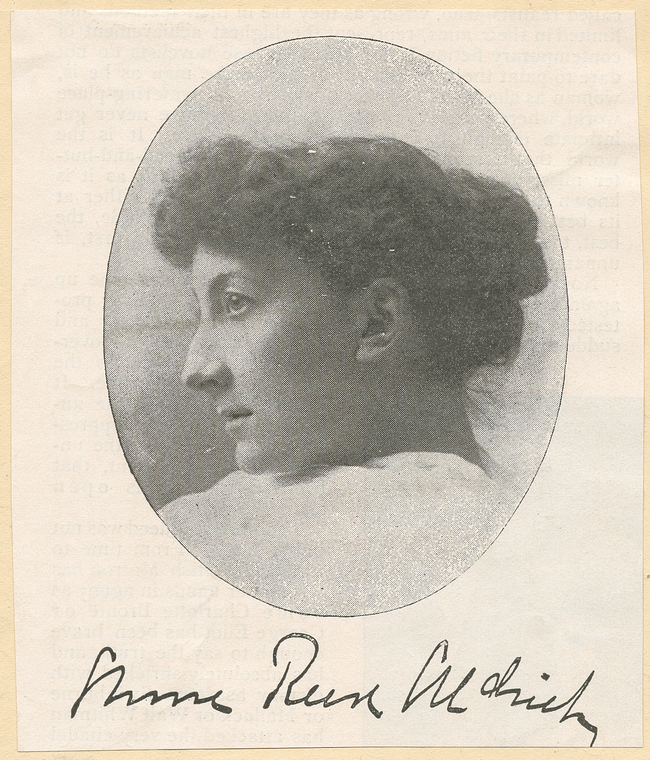
Anne Reeve Aldrich [1866-1892] was an American poet and novelist. She wrote a number of poems in which she seemed to prophesy an early death,
then died at the tender age of 26. She published her first volume of poetry, The Rose of Flame in 1889; it was not well received
(critics cited its "unrestrained expression"). She was also accused of having written “erotic” poems.
Servitude
by Anne Reeve Aldrich
The church was dim at vespers.
My eyes were on the Rood.
But yet I felt thee near me,
In every drop of blood.
In helpless, trembling bondage
My soul's weight lies on thee,
O call me not at dead of night,
Lest I should come to thee!
Other Notorious Poets of Note
William Blake advocated free love, railed against orthodox Christianity, and
called Jehovah "Nobodaddy."
Robert Burns fathered children by different women, wrote drinking songs and
claimed that commoners were as good as kings.
Charles Baudelaire wrote The Flowers of Evil, and has been accused of
Satanism, decadence, etc.
Samuel Taylor Coleridge was an opium addict who consumed up to two quarts
of laudanum per week; his famous poem "Kubla Khan" was written in an opium
dream.
Hart Crane was gay and a heavy drinker; he leaped to
his death from a ship after propositioning a male sailor and being rejected.
e. e. cummings wrote erotic poetry and railed against war and jingoism, but
despite his radical/bohemian image, he supported Joseph McCarthy!
Alan Ginsberg was gay and wrote poems about using
drugs, masturbation, etc.
Abraham Lincoln wrote a ribald poem about a homosexual marriage that was said to
have been more popular than the Bible in parts of Illinois.
Langston Hughes was a radical socialist in the
1930s; possibly gay, he championed black art and condemned white racism.
Christopher Marlowe was accused of being a spy,
counterfeiter, brawler and heretic; he was assassinated shortly after being
accused of blasphemy.
Michelangelo wrote homoerotic poems to a young man, the first such poems to be
written in a modern language.
Edgar Allan Poe was court-martialed from West
Point for refusing to attend classes and church.
Sir Walter Raleigh was a soldier, courtier,
adventurer and spy. He was sent to the Tower of London for seducing and secretly
marrying one of Queen Elizabeth's ladies in waiting. He was later beheaded for
treason on what seem to have been trumped-up charges.
Rainer Maria Rilke had a highly unconventional life for his day. When he was
young his mother, who had lost a daughter, dressed him in girl's clothing. He
later had a relationship with an older married woman. He did not believe in the
divinity of Christ and wrote a poem about Mary Magdalene bearing him a son.
Algernon Charles Swinburne an alcoholic and sexual masochist who wrote about his
fetishes, although no less an expert than Oscar Wilde claimed that he
exaggerated.
Walt Whitman was the father of American free verse.
He wrote overtly sexual homoerotic poems that were beyond radical for their
time.
Meetings of the Notorious Poets
On January 18, 1882 Oscar Wilde visited Walt Whitman in Camden, where the older
poet was living with his brother and sister-in-law. Wilde told Whitman that his
mother had read Leaves of Grass to him as a boy, and that later at
Oxford he and his friends had carried the book to read on their walks.
Flattered, Whitman offered Wilde, whom he later described as "a fine large
handsome youngster," some of his sister-in-law's homemade elderberry wine, and
they conversed for two hours. Asked later by a friend how he had managed to get
the elderberry wine down, Wilde replied: "If it had been vinegar I would have
drunk it all the same, for I have an admiration for that man which I can hardly
express." In a letter to Whitman postmarked March 1, 1882, Wilde wrote: "Before
I leave America I must see you again. There is no one in this wide great world
of America whom I love and honour so much." Wilde was true to his word, making a
second visit to Whitman the following May.
Other Notorious Atheists and Agnostics
Javier Bardem (actor), James Cameron (director), Richard Dawkins (biologist),
Daniel Dennett (philosopher), Brian Eno (musician/composer), Arian Foster (NFL),
Jodie Foster (actress), Ricky Gervais (actor/comedian), Paul Giamatti (actor),
Kathy Griffin (comedian), Sam Harris (scientist), Christopher Hitchens (author),
Penn Jillette (comedian), Billy Joel (singer/songwriter), Keira Knightley
(actress), Hugh Laurie (actor), Seth McFarlane (cartoonist), Sir Ian McKellen
(the actor who played Gandalf in The Lord of the Rings), Julianne Moore
(actress), Daniel Radcliffe (the actor who played Harry Potter), Andy Rooney (of
60 Minutes fame), Emma Thompson (actress)
Less Heroic Couplets: Funding Fundamentals
by Michael R. Burch
"I found out that I was a Christian for revenue only and I could not bear the thought of that, it was so ignoble." — Mark Twain
Making sense from nonsense is quite sensible! Suppose
you’re running low on moolah, need some cash to paint your toes ...
Just invent a new religion; claim it saves lost souls from hell;
have the converts write you checks; take major debit cards as well;
take MasterCard and Visa and good-as-gold Amex;
hell, lend and charge them interest, whether payday loan or flex.
Thus out of perfect nonsense, glittery ores of this great mine,
you’ll earn an easy living and your toes will truly shine!
Originally published by Lighten Up Online
Dust
by Michael R. Burch
We are dust
and to dust we must
return ...
but why, then,
life’s pointless sojourn?
Related pages:
Famous Geniuses,
Famous Beauties,
Famous Historical Beauties,
Famous Courtesans,
Famous Ingénues,
Famous Hustlers,
Famous Pool Sharks,
Famous Rogues,
Famous Heretics,
Famous Hypocrites,
Famous Forgers,
Famous Frauds,
Famous Flops,
Famous Morons,
The Dumbest Things Ever Said,
Famous Last Words,
Famous Insults,
Famous Hoaxes and Hucksters,
Famous Firsts,
England's Greatest Artists
The HyperTexts







































